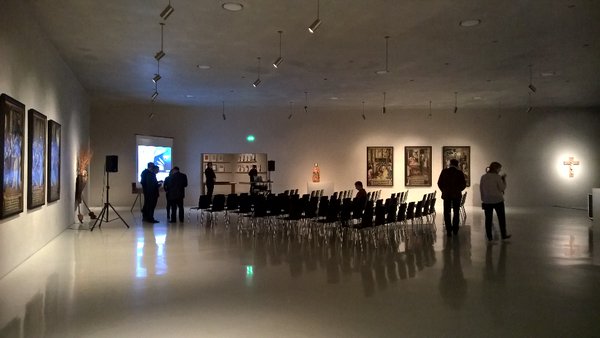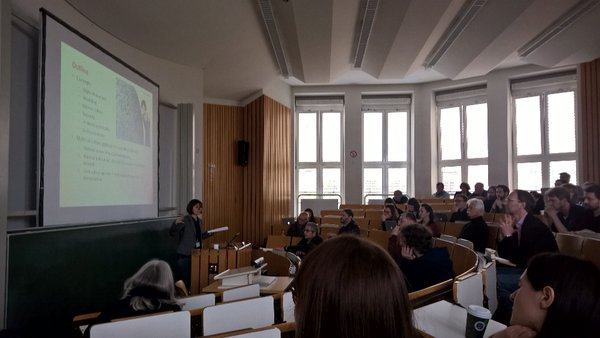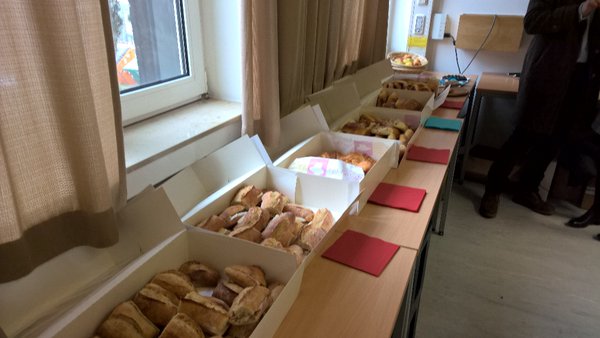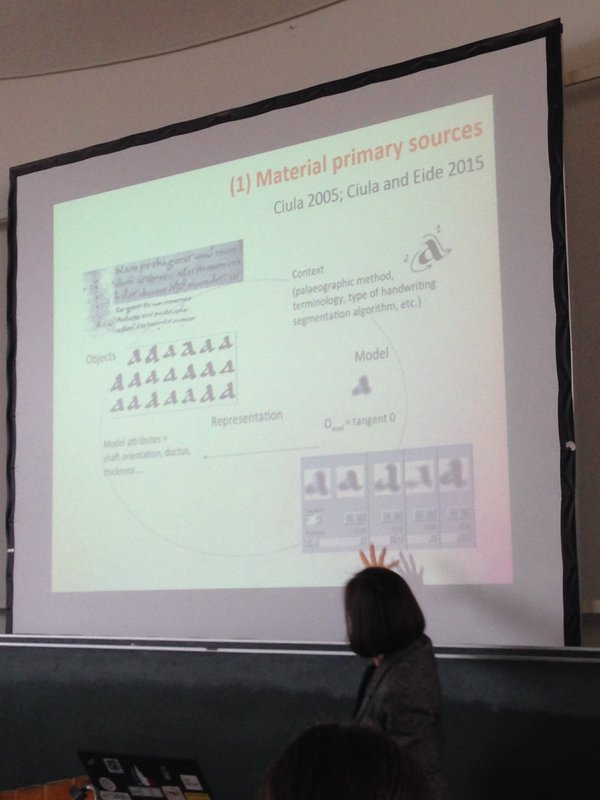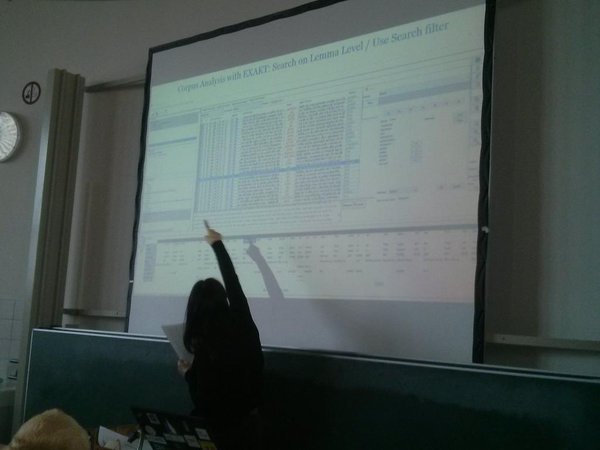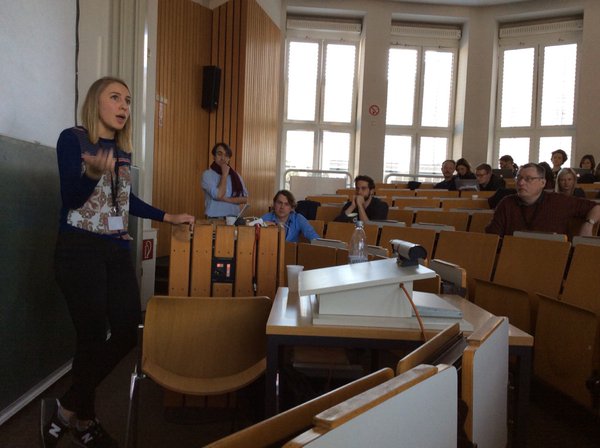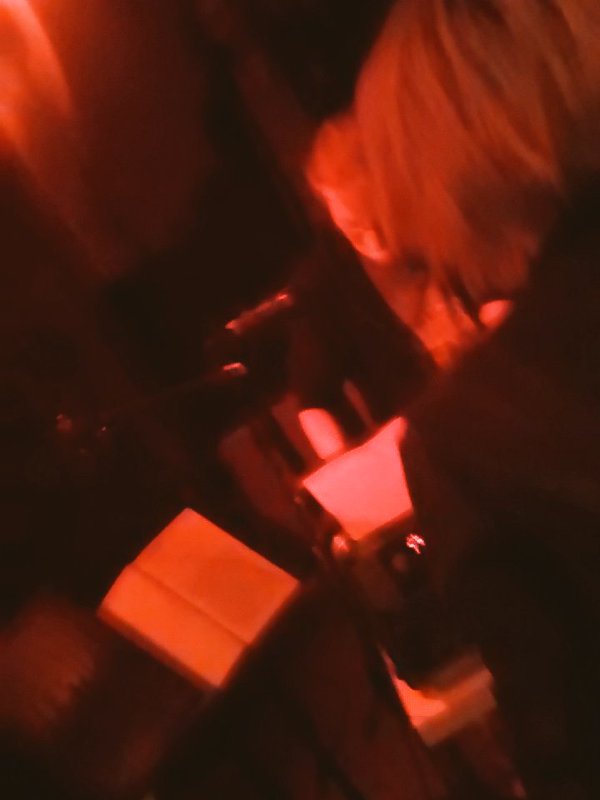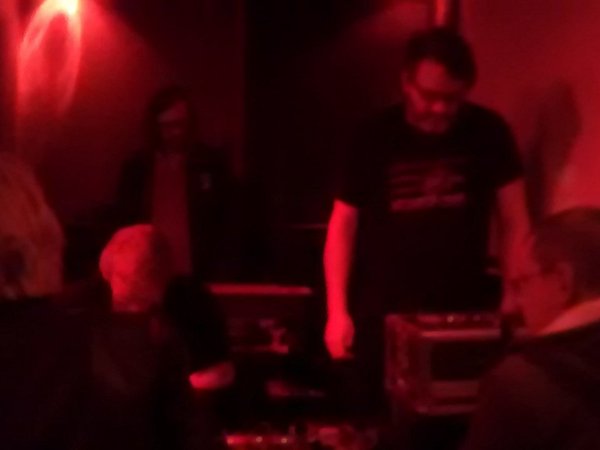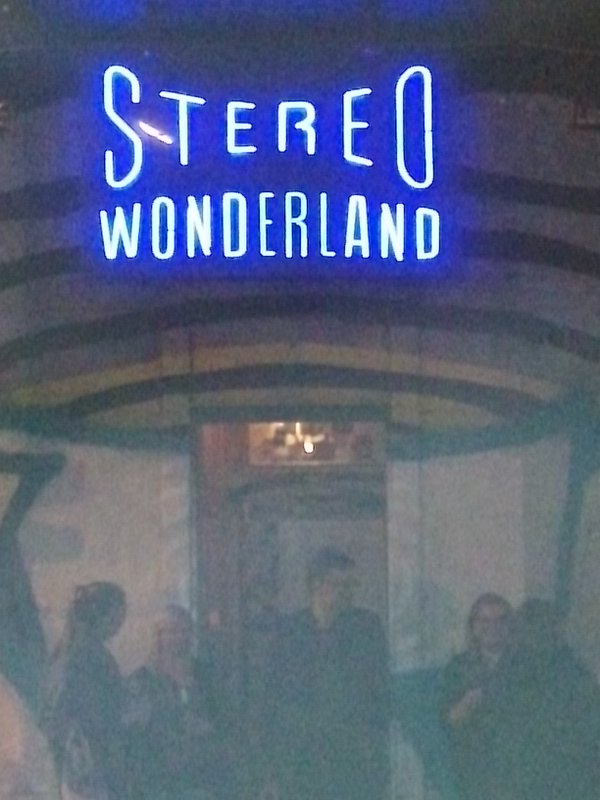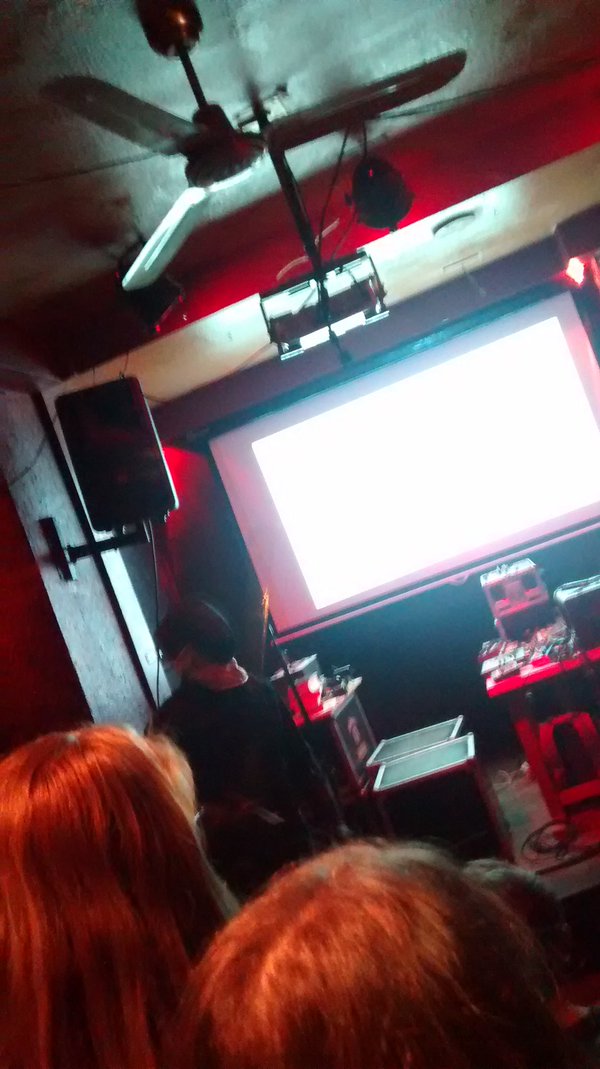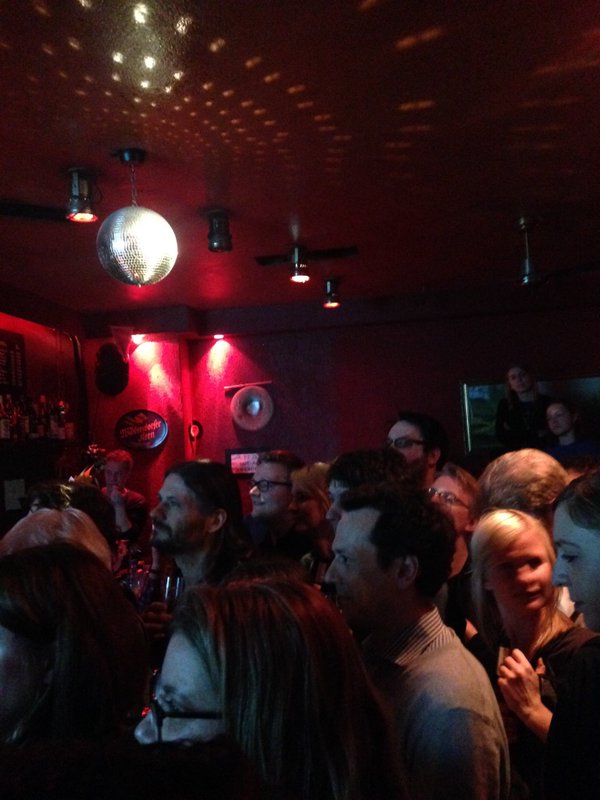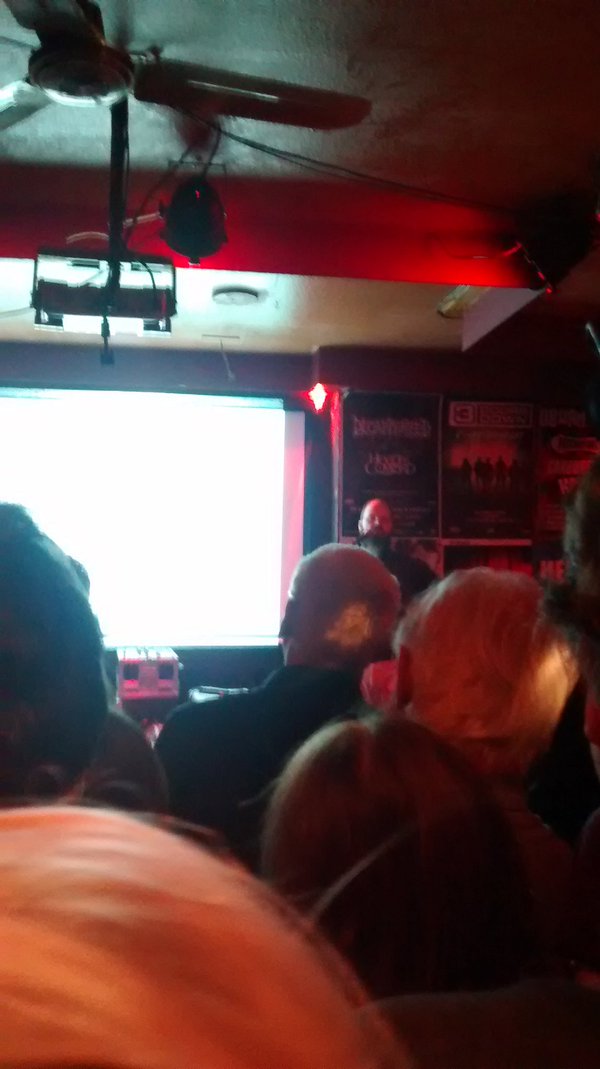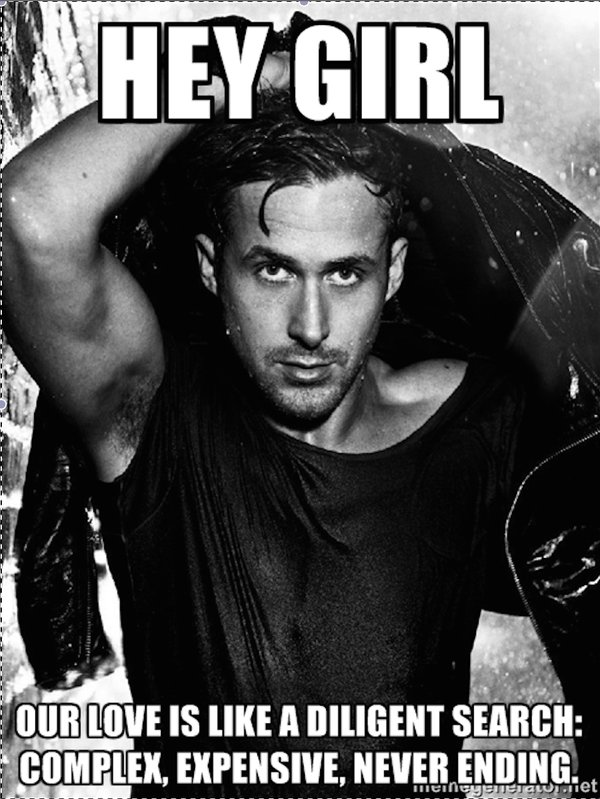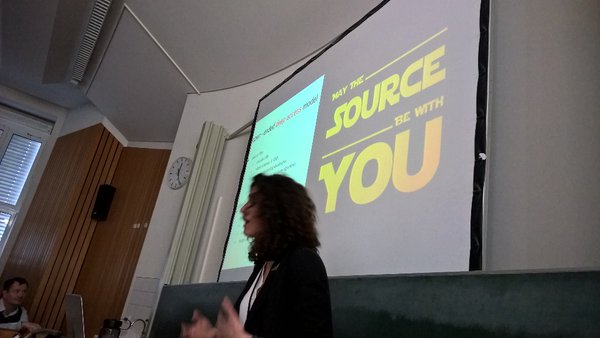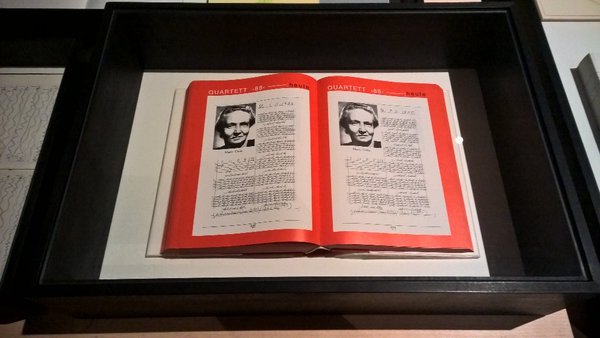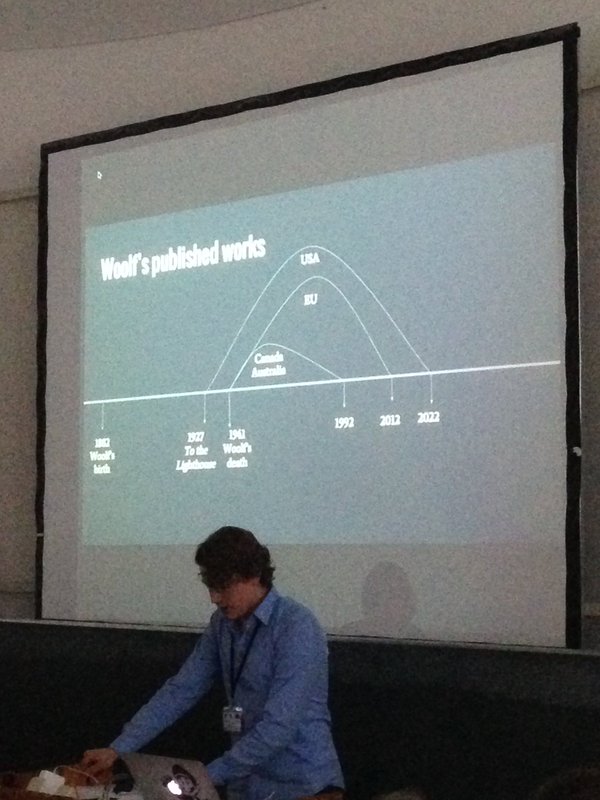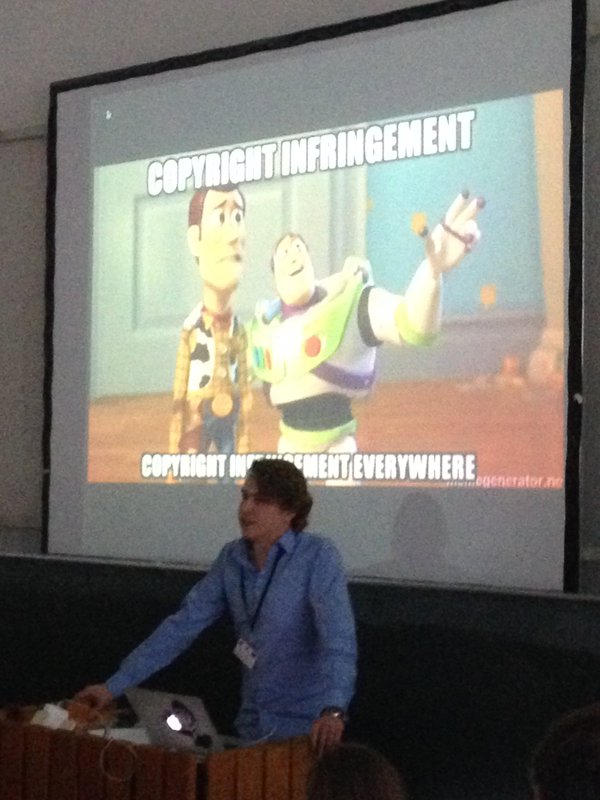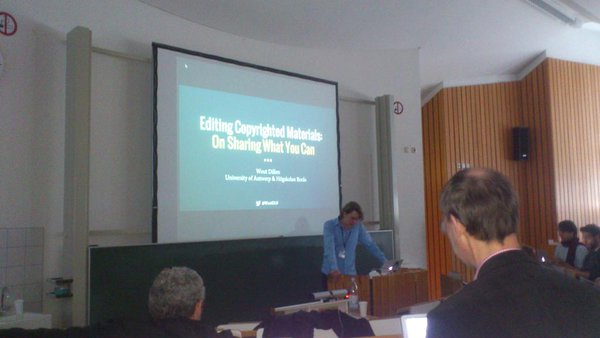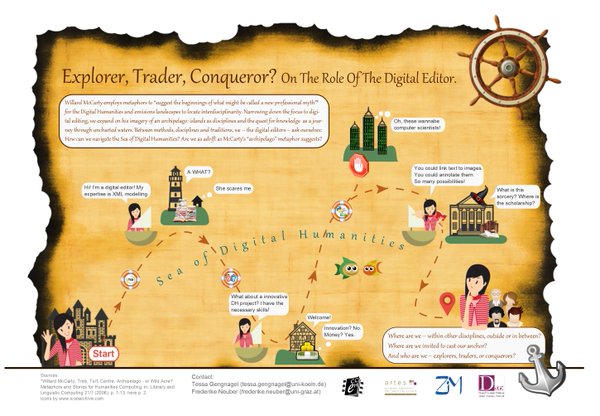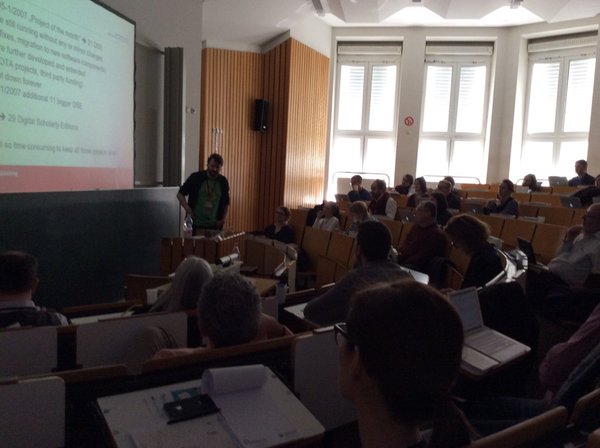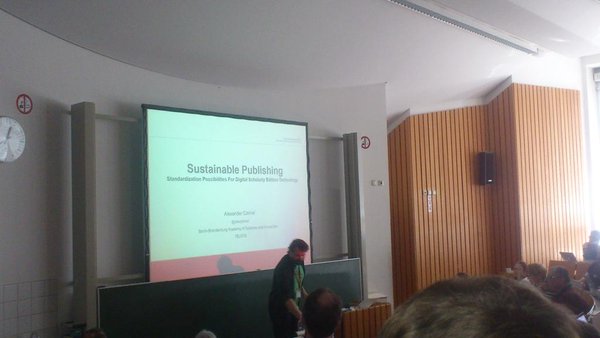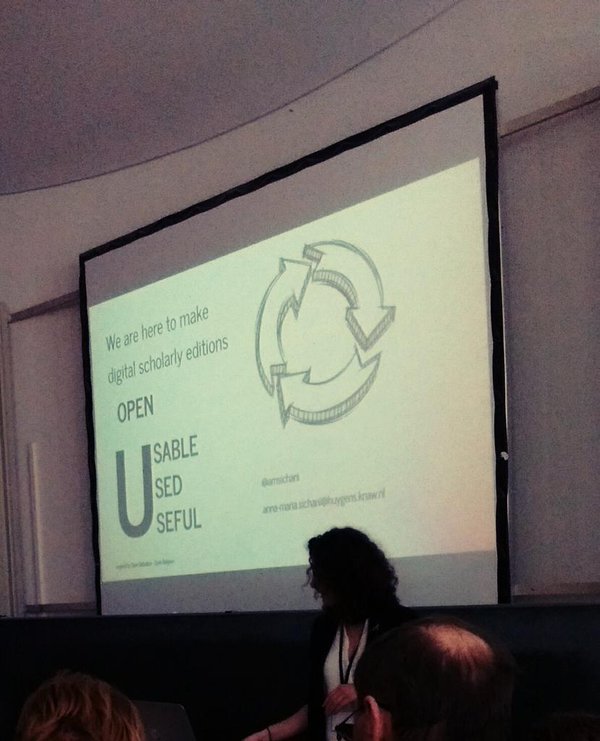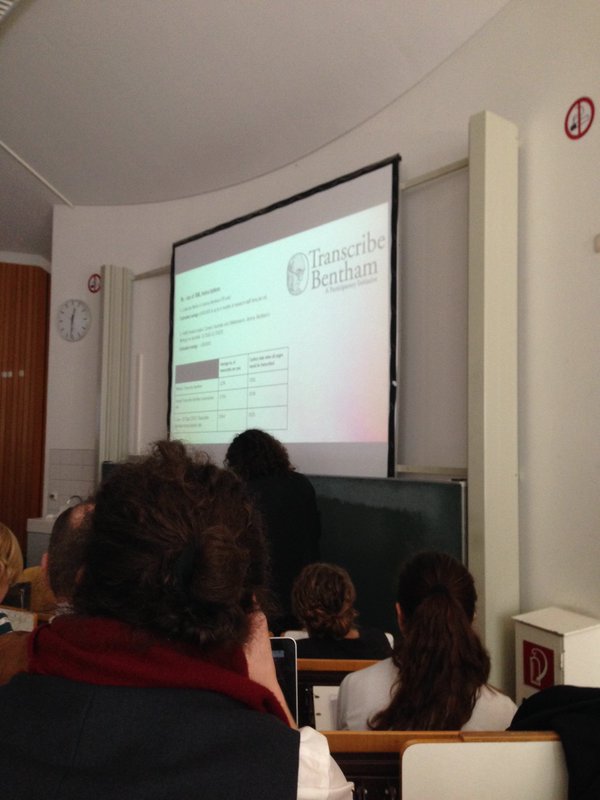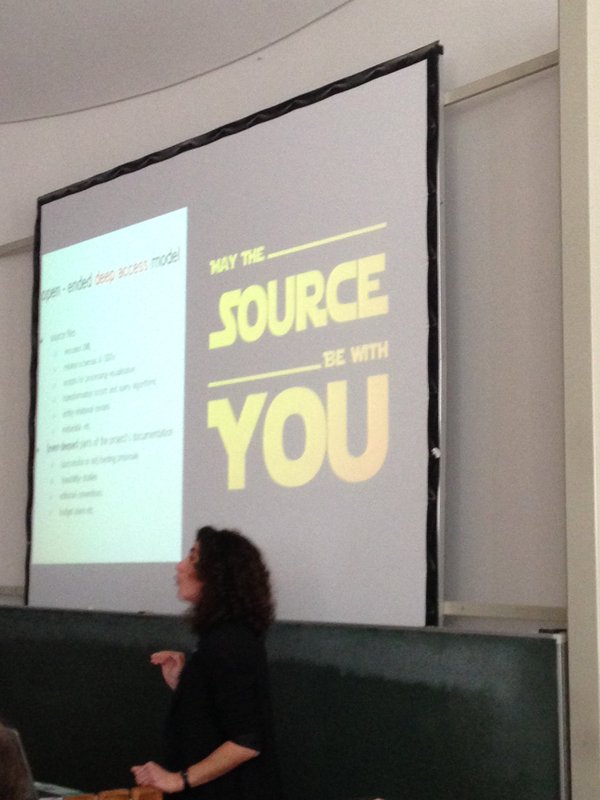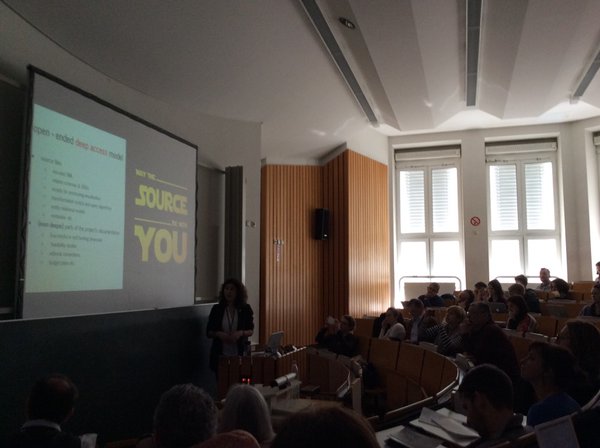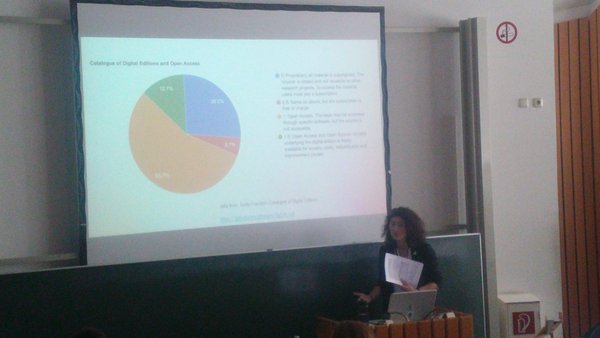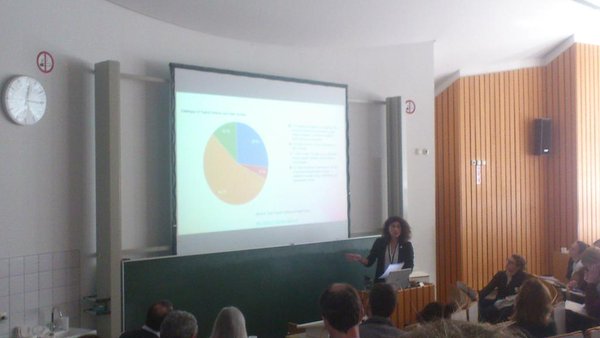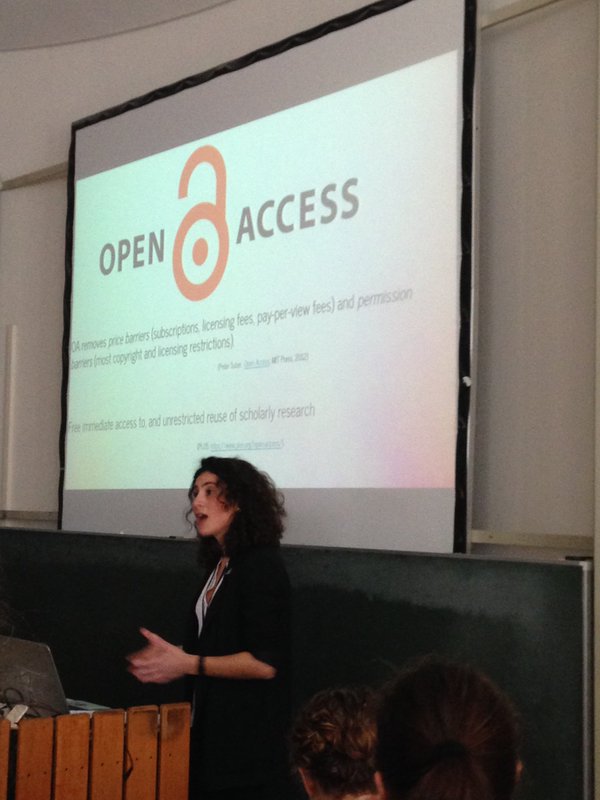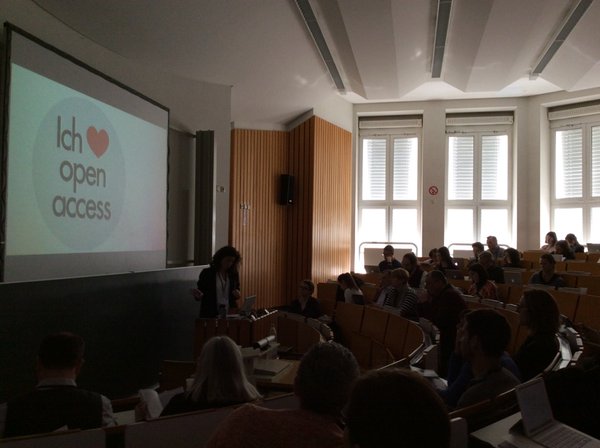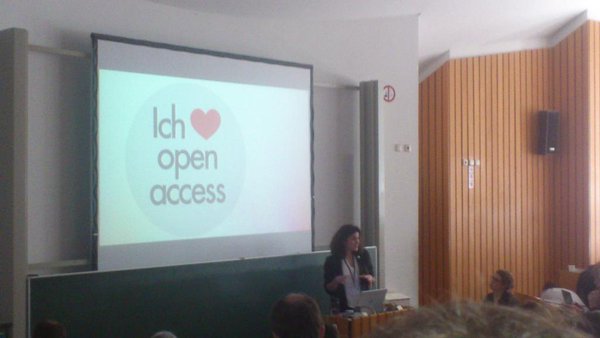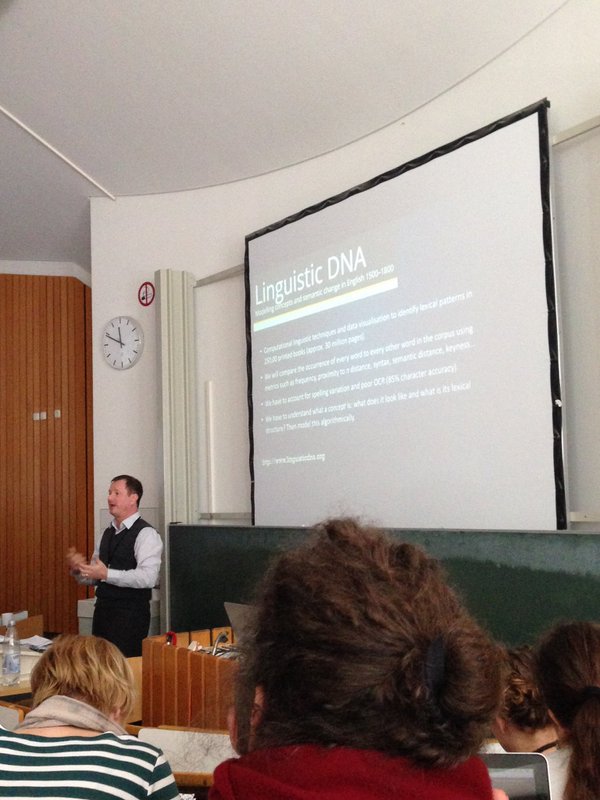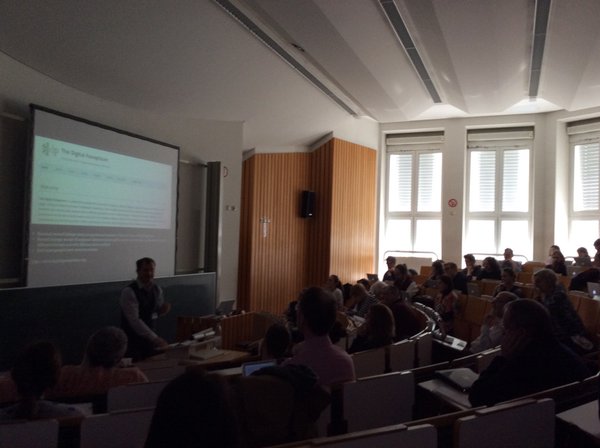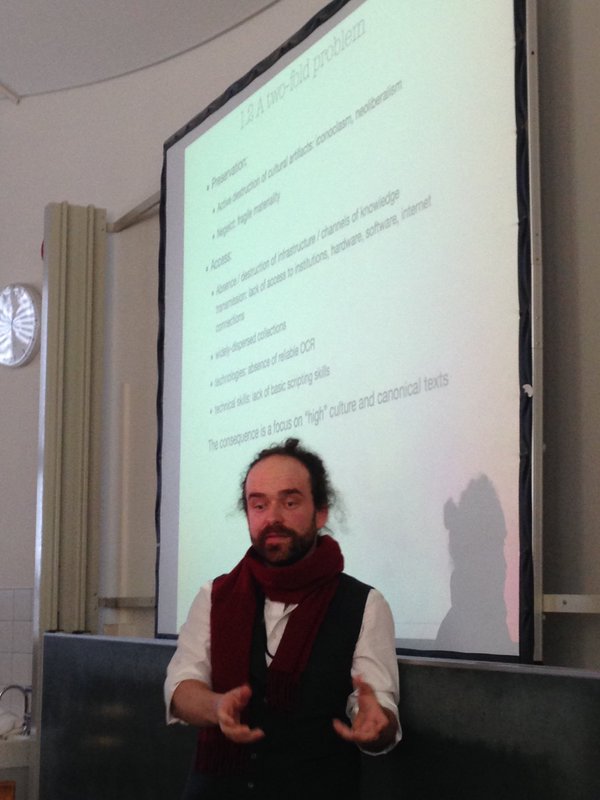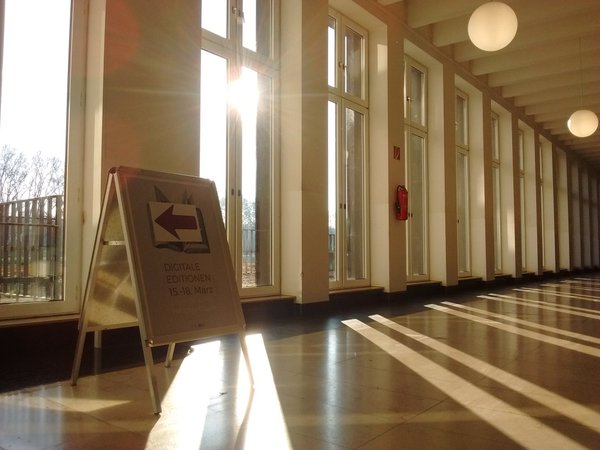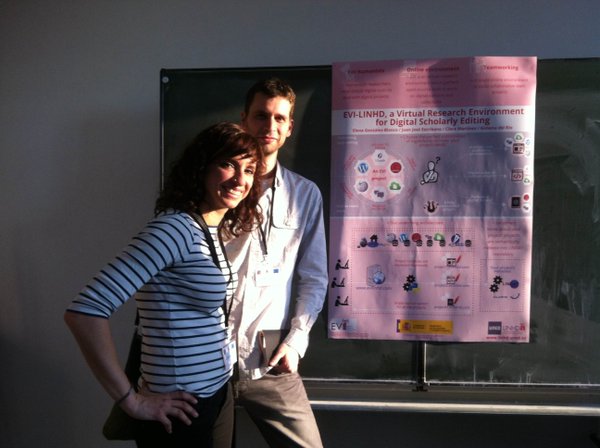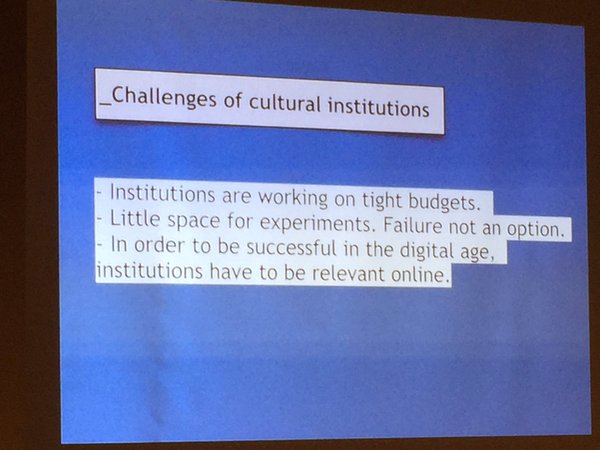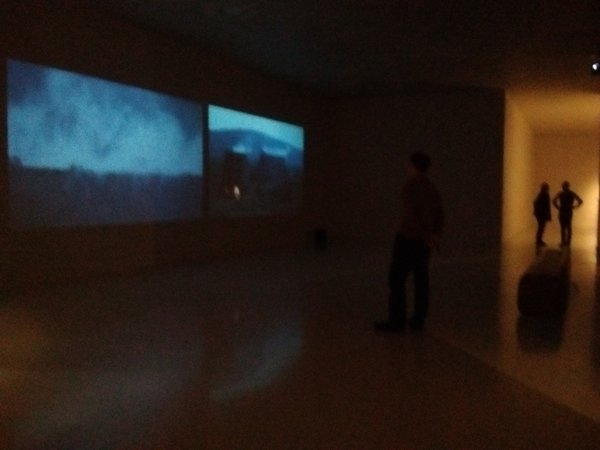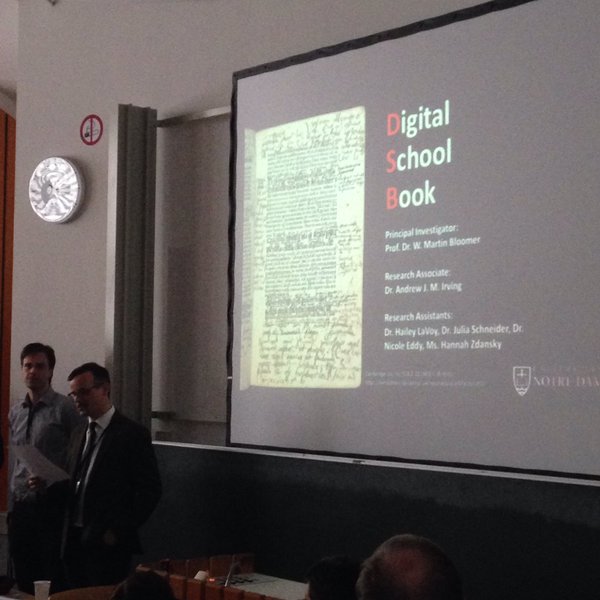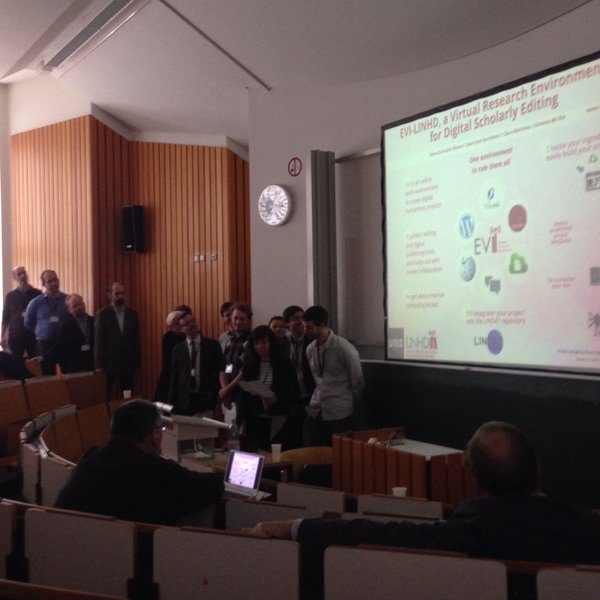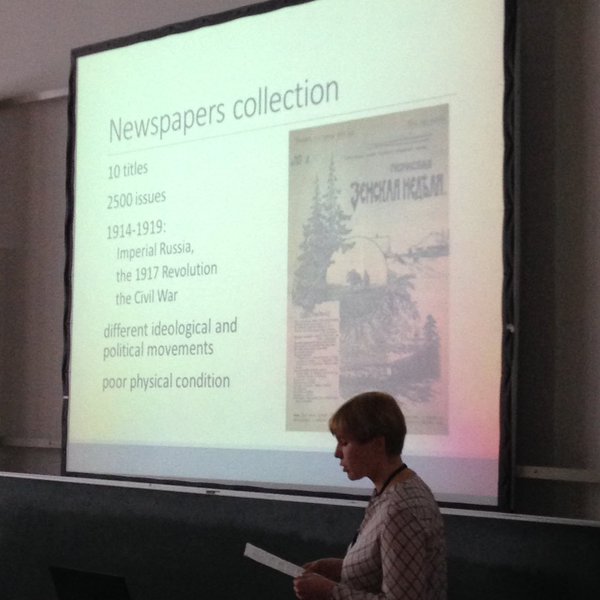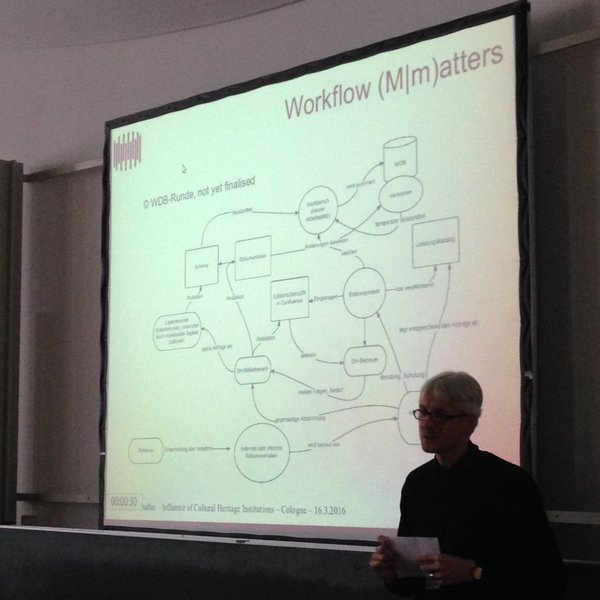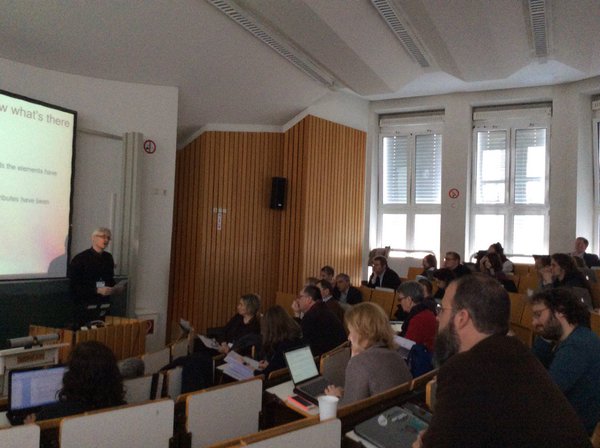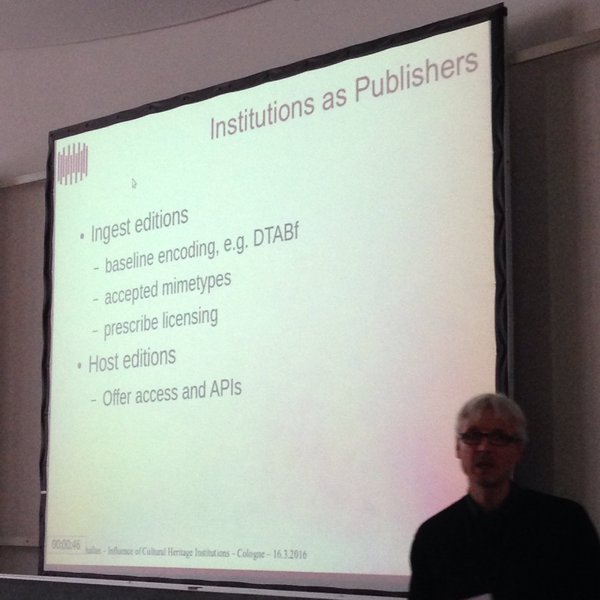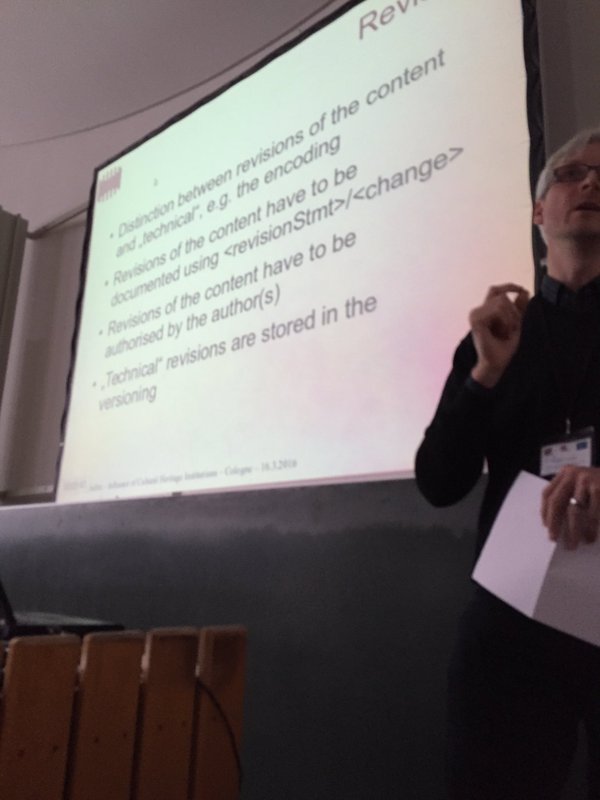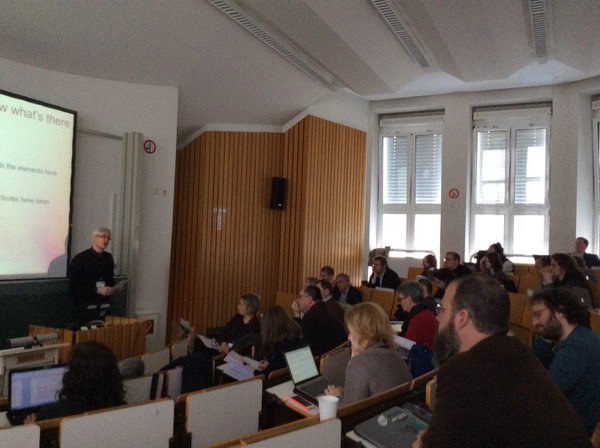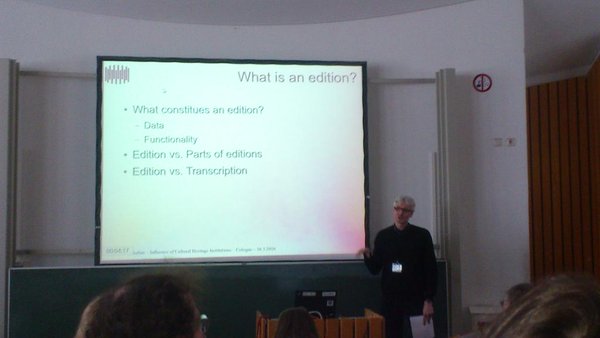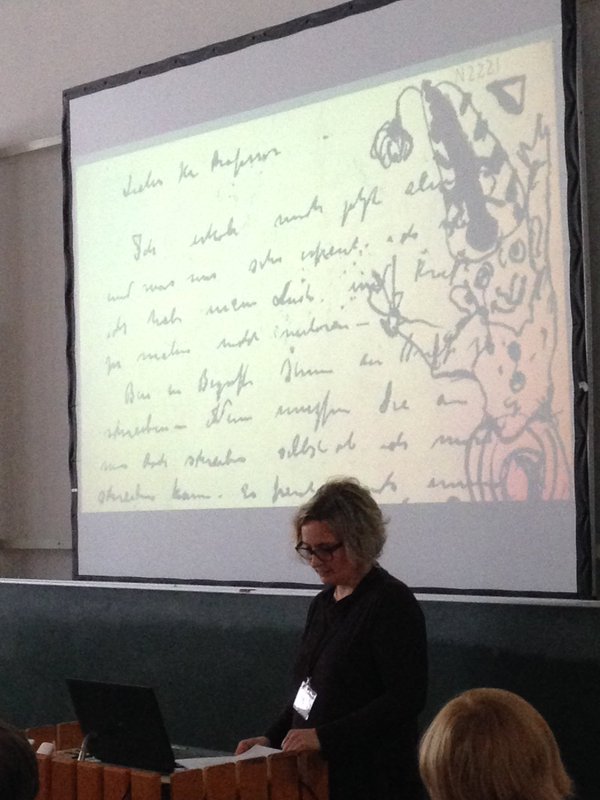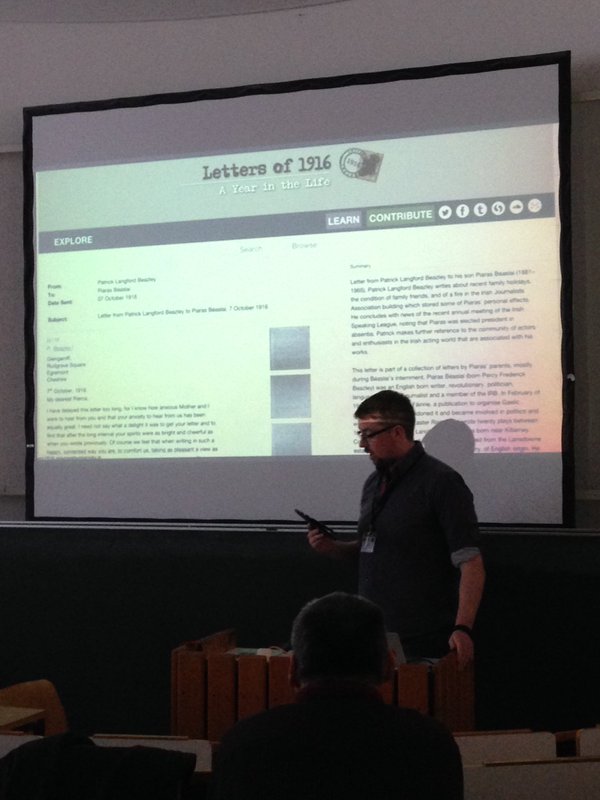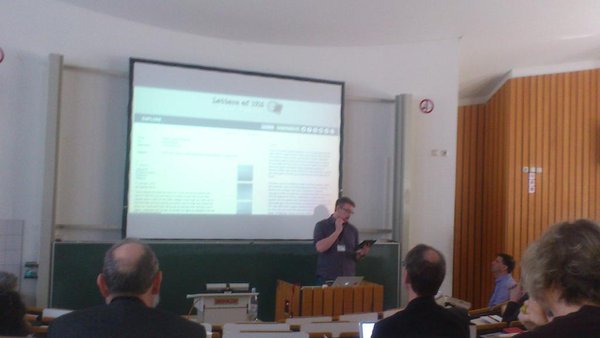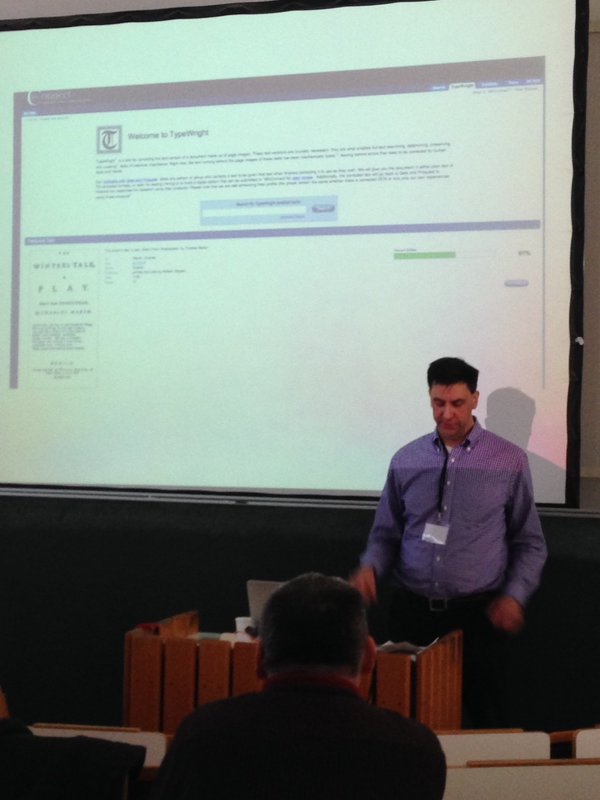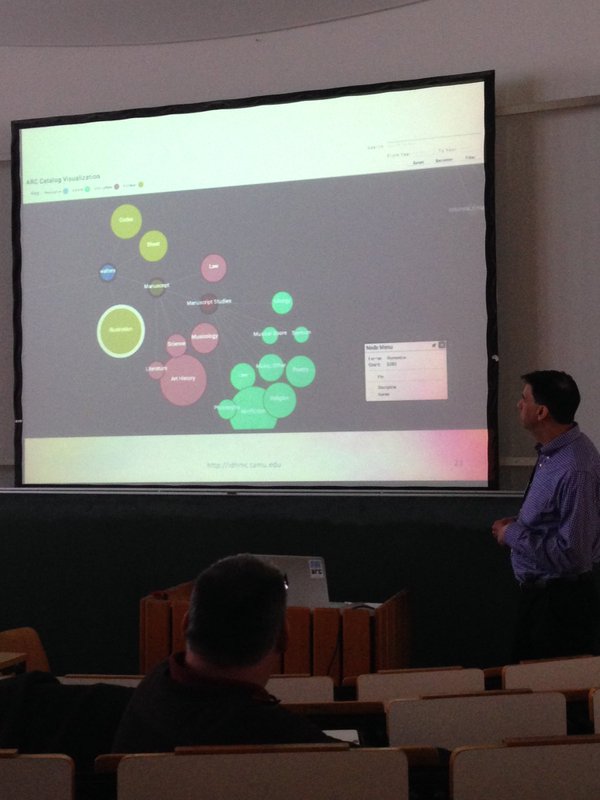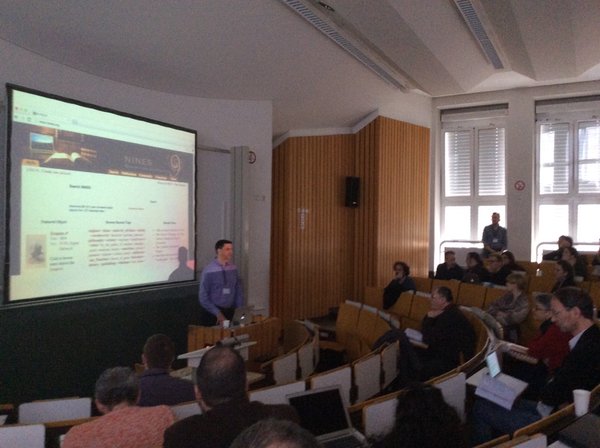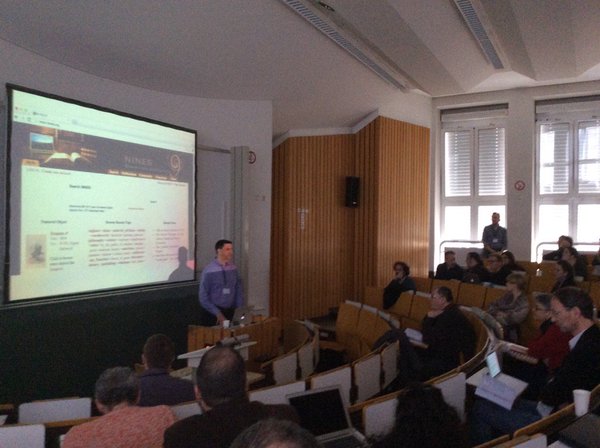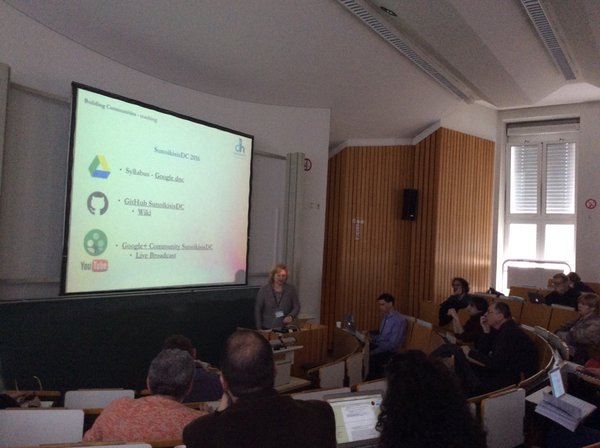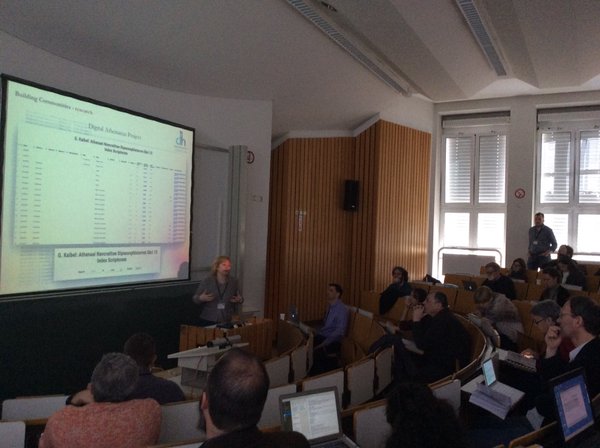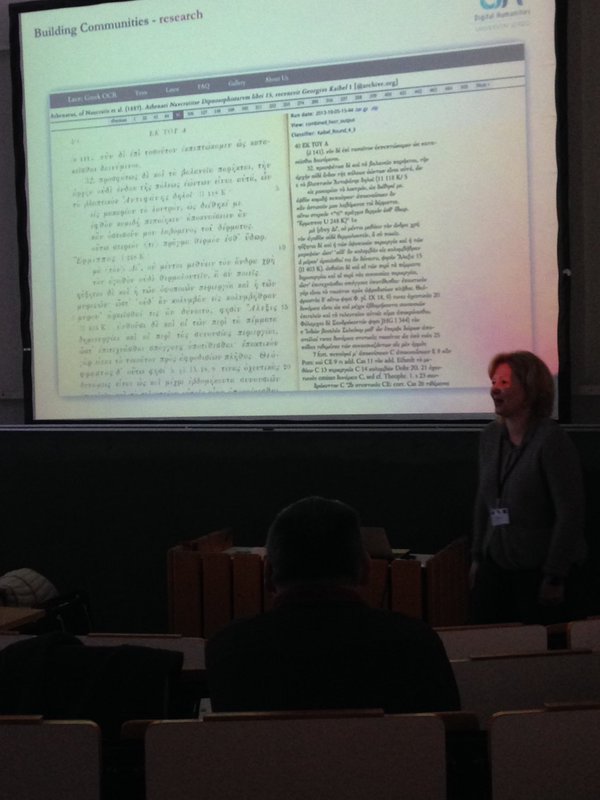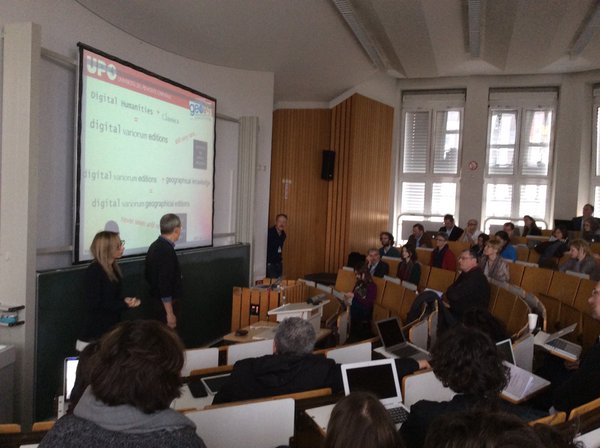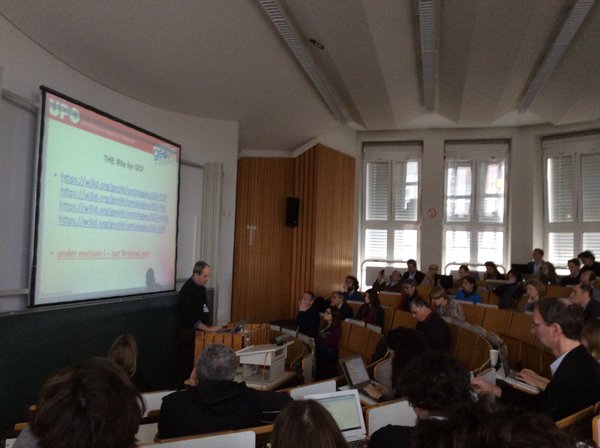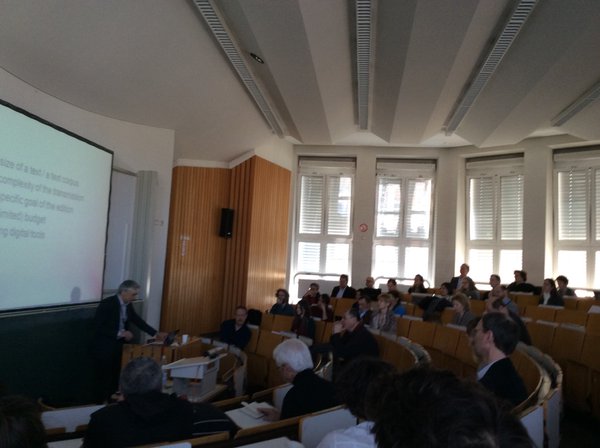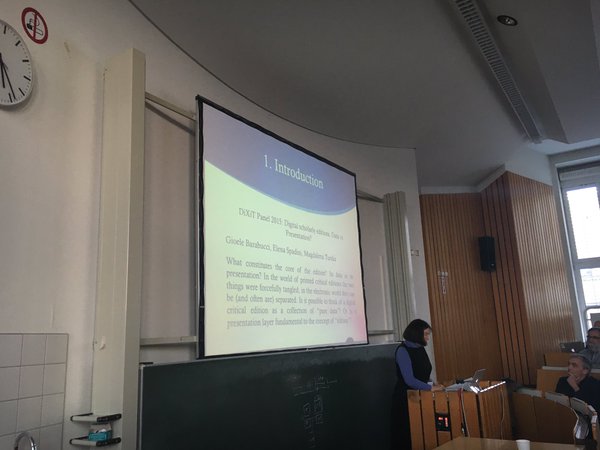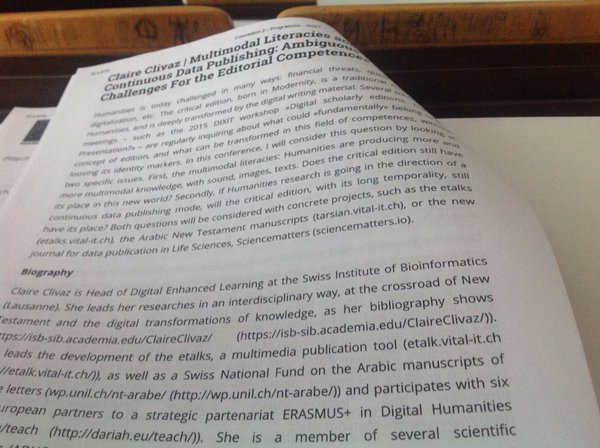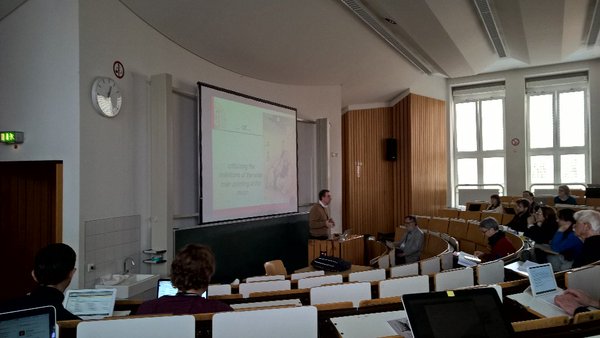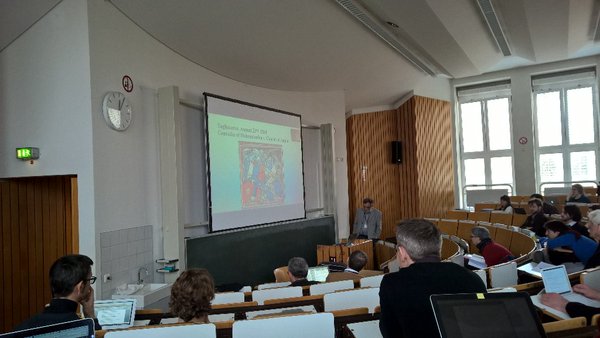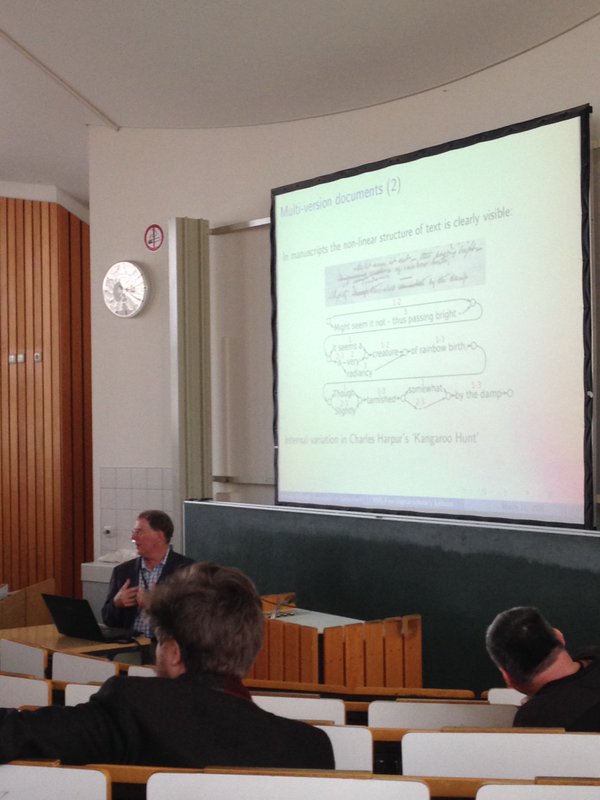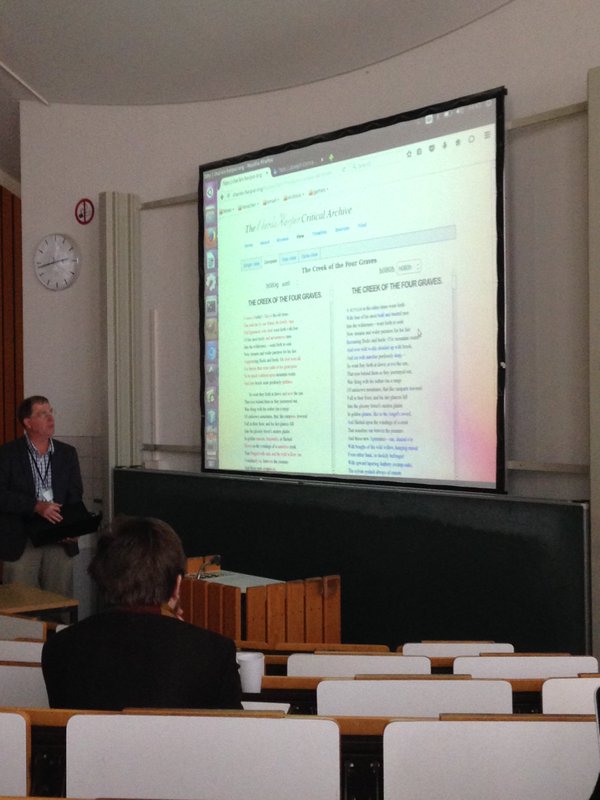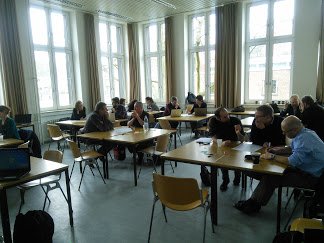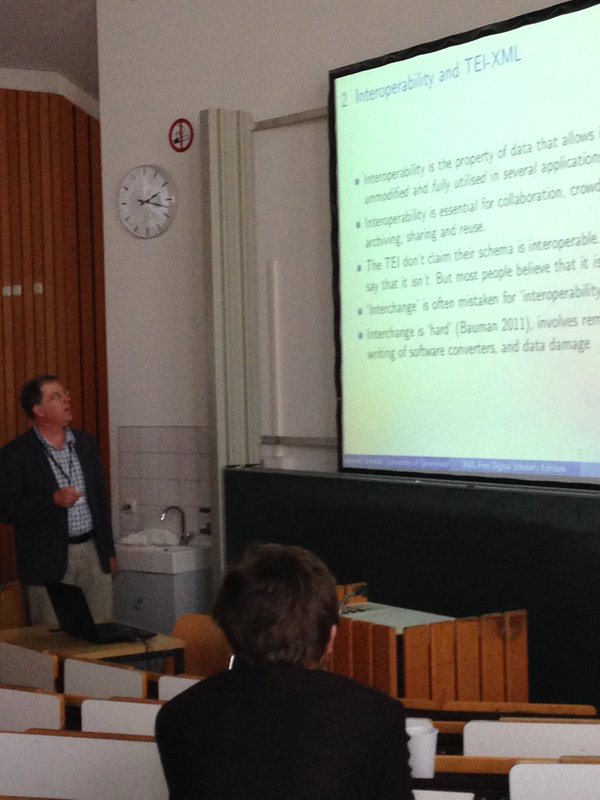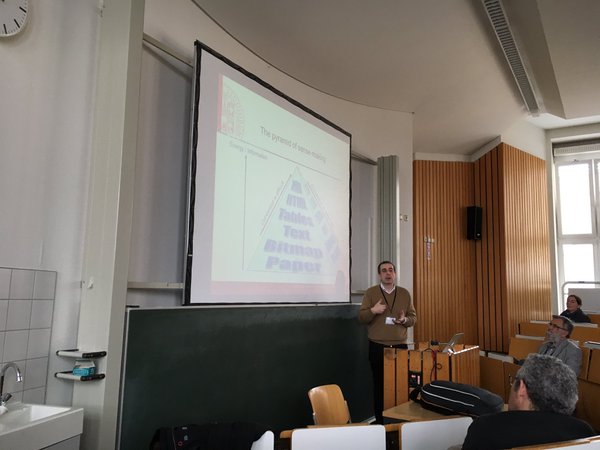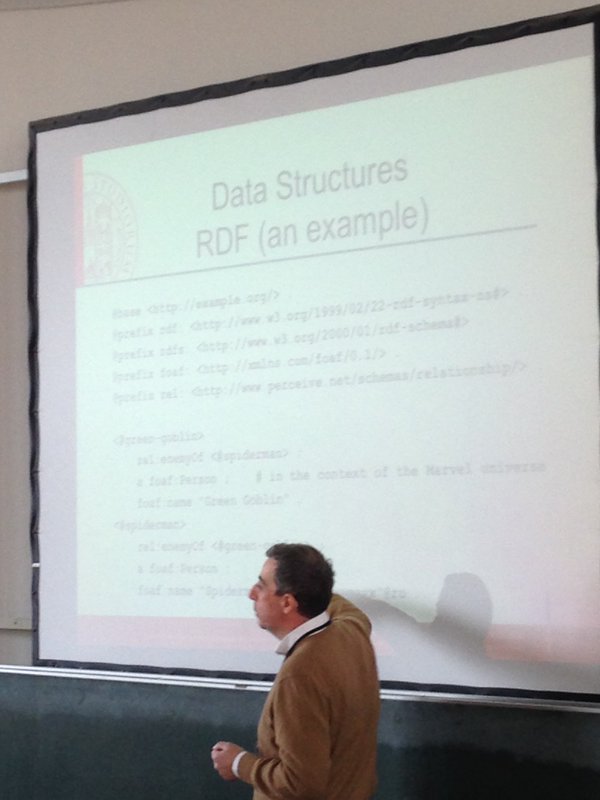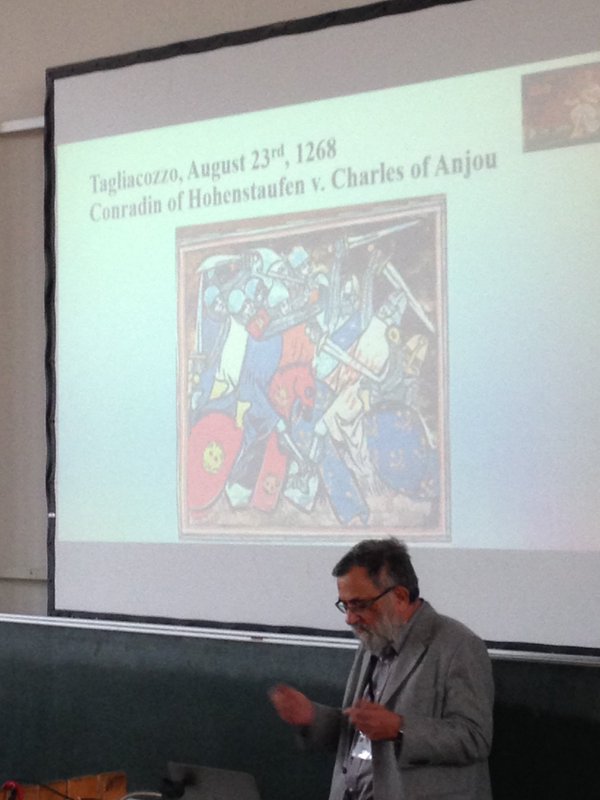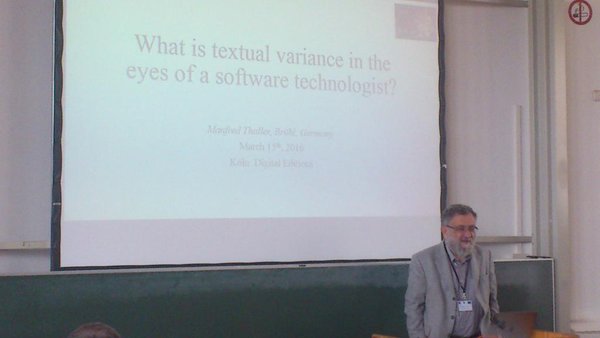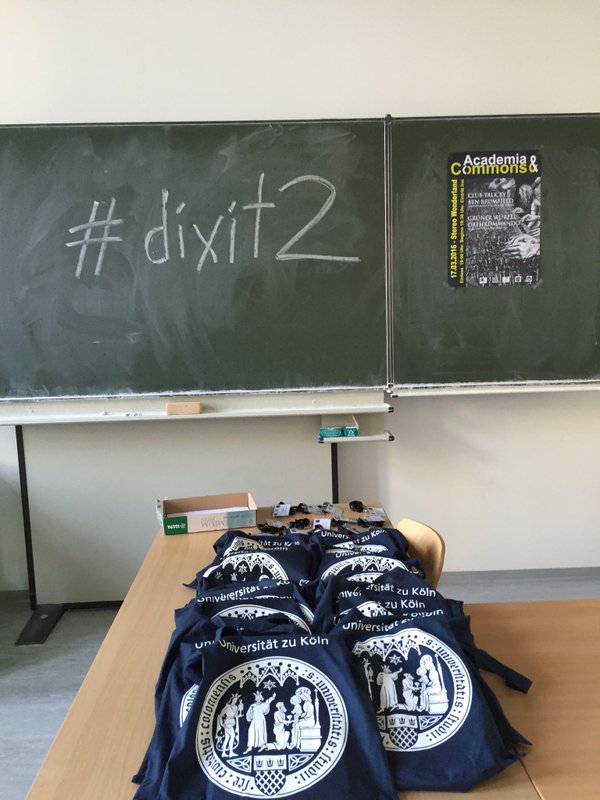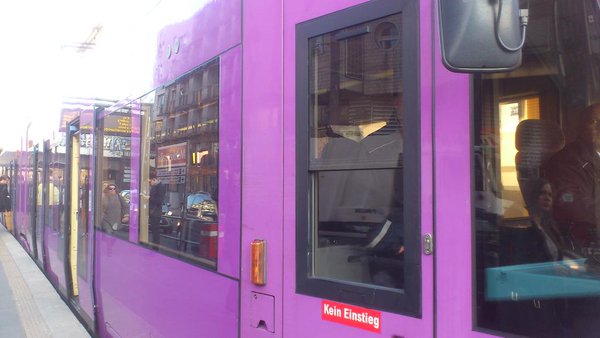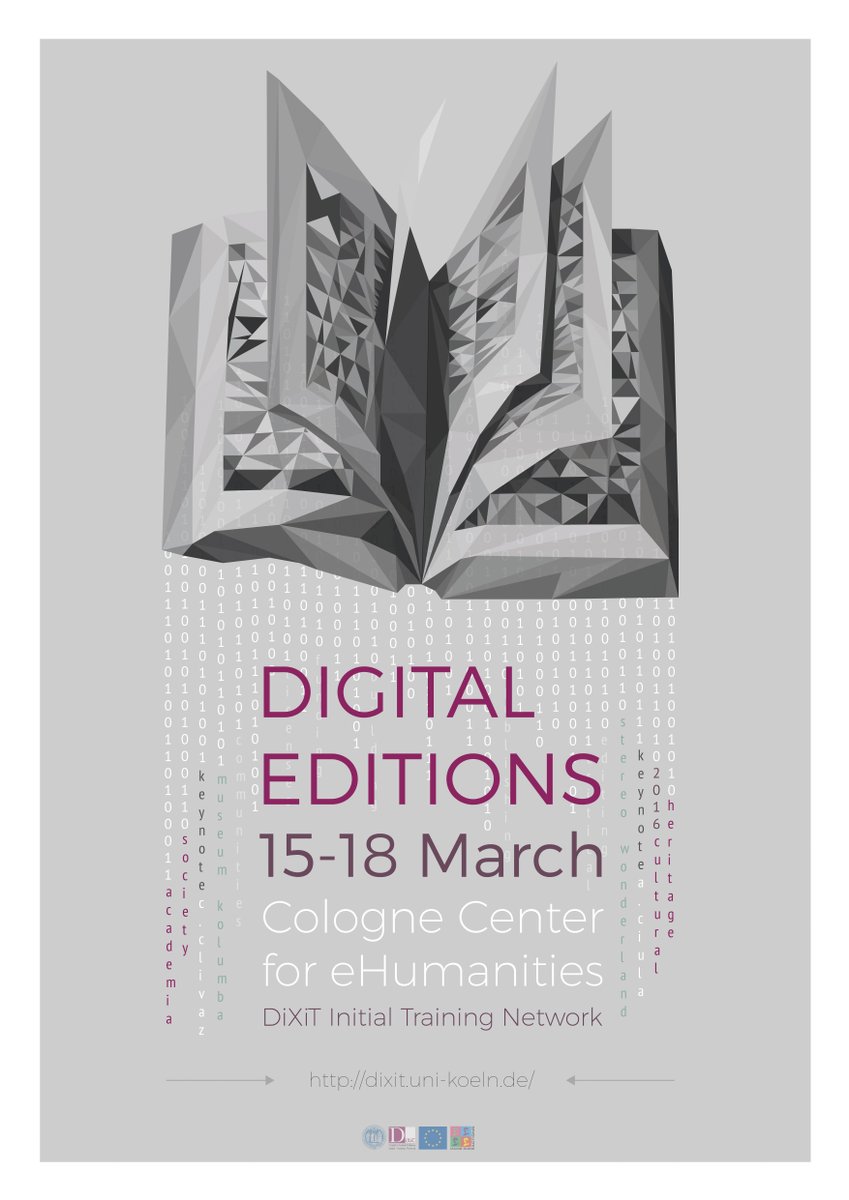 | CCeH @CCeHum | 13 April |
   | ||
 | DiXiT @DiXiT_eu | 13 April |
   | ||
 | CCeH @CCeHum | 13 April |
   | ||
 | jhermes @spinfocl | 13 April |
Was man nicht sieht: Das fand in einer prall gefüllten Kneipe über den Köpfen knieender Zuschauer statt. | ||
   | ||
 | DiXiT @DiXiT_eu | 13 April |
   | ||
 | CCeH @CCeHum | 13 April |
   | ||
 | CCeH @CCeHum | 13 April |
   | ||
 | DiXiT @DiXiT_eu | 13 April |
   | ||
 | DiXiT @DiXiT_eu | 7 April |
   | ||
 | Rosanna Cantavella @Cantavestrella | 4 April |
Blog: crònica de les jornades DiXiT a Colònia sobre edició digital | ||
   | ||
 | Rosanna Cantavella @Cantavestrella | 23 March |
Crònica de les jornades DiXiT d'edició digital celebrades a Colònia
http://cantave.blogs.uv.es/2016/03/23/jornades-dixit-dedicio-digital/ …
| ||
   | ||
 | Dinara Gagarina @dinaraamirovna | 22 March |
about | ||
   | ||
 | Dinara Gagarina @dinaraamirovna | 22 March |
   | ||
 | Stephan_Makowski @Stephan_Mak | 21 March |
Wie ich beim Posterslam zu | ||
   | ||
 | Textual Scholarship @ESTS_eu | 21 March |
Due 2 popular demand @ | ||
   | ||
 | Anna-Maria Sichani @amsichani | 19 March |
   | ||
 | Patrick Sahle @patrick_sahle | 18 March |
Just to keep the history straight: I have NOT coined the term DiXiTeers for the DiXiT-fellows but don't know who invented it | ||
   | ||
 | Arianna Ciula @ariciula | 18 March |
   | ||
 | Tessa @tuotilo | 18 March |
And that's it, it was fun & above all food for thought. Now going back into hibernation ;) | ||
   | ||
 | Tessa @tuotilo | 18 March |
"if the tent becomes too big, the roof comes down" | ||
   | ||
 | Tessa @tuotilo | 18 March |
"the artist makes the invisible visible" | ||
   | ||
 | Tessa @tuotilo | 18 March |
I rather liked the food in the coffee breaks (Merlê bakery if you're ever in Cologne) | ||
   | ||
 | DiXiT @DiXiT_eu | 18 March |
If you missed | ||
   | ||
 | DiXiT @DiXiT_eu | 18 March |
We'll be putting material from the conference on our website in the next few weeks (videos, presentation slides) | ||
   | ||
 | DiXiT @DiXiT_eu | 18 March |
Thanks to everyone for making a successful conference possible - presenters, participants, helpers, musicians, sword fighters | ||
   | ||
 | Rosanna Cantavella @Cantavestrella | 18 March |
I was sorry I couldn't stay but 2 days at | ||
   | ||
 | Wout Dillen @WoutDLN | 18 March |
   | ||
 | Wout Dillen @WoutDLN | 18 March |
   | ||
 | Hugh Houghton @HAGHoughton | 18 March |
   | ||
 | Merisa Martinez @merisamartinez | 18 March |
   | ||
 | Merisa Martinez @merisamartinez | 18 March |
   | ||
 | Øyvind Eide @oeide | 18 March |
   | ||
 | Øyvind Eide @oeide | 18 March |
   | ||
 | Patricia O Connor @trishaoconnor88 | 18 March |
   | ||
 | Øyvind Eide @oeide | 18 March |
   | ||
 | Elli Bleeker @ellibleeker | 18 March |
   | ||
 | Øyvind Eide @oeide | 18 March |
   | ||
 | Daniel Powell @djp2025 | 18 March |
. | ||
   | ||
 | Patricia O Connor @trishaoconnor88 | 18 March |
   | ||
 | Øyvind Eide @oeide | 18 March |
   | ||
 | Rosanna Cantavella @Cantavestrella | 18 March |
That must also be said of digital scholarly editions. Relevant for Open Access and licensing debates. | ||
   | ||
 | Daniel Powell @djp2025 | 18 March |
   | ||
 | Dinara Gagarina @dinaraamirovna | 18 March |
Closing keynote | ||
   | ||
 | Dinara Gagarina @dinaraamirovna | 18 March |
Last session | ||
   | ||
 | jhermes @spinfocl | 18 March |
   | ||
 | Dinara Gagarina @dinaraamirovna | 18 March |
Vera Fasshauer at | ||
   | ||
 | Wout Dillen @WoutDLN | 18 March |
I've put the pdf of the flyer for | ||
   | ||
 | Arianna Ciula @ariciula | 18 March |
   | ||
 | Thomas Kollatz @kol_t | 18 March |
FIND Frühneuzeitliche Fürstinnenkorrespondenz ( | ||
   | ||
 | Elli Bleeker @ellibleeker | 18 March |
   | ||
 | Tessa @tuotilo | 18 March |
&
those who have a naturally critical mind will be able to make a case
for their choices unlike those who apply no consistent logic | ||
   | ||
 | Tessa @tuotilo | 18 March |
ia w/ Charles Li that it's good when editors are forced to be more explicit in their reasoning bc often it's only implicit... | ||
   | ||
 | Torsten Schaßan @schassan | 18 March |
well done, Tessa! | ||
   | ||
 | Arianna Ciula @ariciula | 18 March |
Discussion on Charles Li's paper: what of the critical mind of the editor can/should be formalised and what not? | ||
   | ||
 | ingo @ingoboerner | 18 March |
Heading home. Bye, bye CGN and | ||
   | ||
 | Arianna Ciula @ariciula | 18 March |
Charles Li on expressing principles of critical apparatus formally for Sanskrit texts | ||
   | ||
 | Rosanna Cantavella @Cantavestrella | 17 March |
Let it be light in Merisa Martínez's debate! | ||
   | ||
 | jhermes @spinfocl | 17 March |
Oh, jetzt St. | ||
   | ||
 | jhermes @spinfocl | 17 March |
Text from "The book of blood" Grüner Würfel Drehkommando | ||
   | ||
 | jhermes @spinfocl | 17 March |
CC-Music dixit2 pic.twitter.com/MQEhJJGuCl | ||
   | ||
 | Patrick Sahle @patrick_sahle | 17 March |
Talking about Urtext, Stemmatology and Körperlichkeit @StereoWonderland | ||
   | ||
 | jhermes @spinfocl | 17 March |
Martial Arts | ||
   | ||
 | Patricia O Connor @trishaoconnor88 | 17 March |
So we're celebrating in a red room with a stag's head and swords in close proximity... | ||
   | ||
 | Patricia O Connor @trishaoconnor88 | 17 March |
   | ||
 | jhermes @spinfocl | 17 March |
   | ||
 | jhermes @spinfocl | 17 March |
Den ganzen Tag | ||
   | ||
 | Patricia O Connor @trishaoconnor88 | 17 March |
   | ||
 | Manuscript Genetics @CMG_UA | 17 March |
Cfp for | ||
   | ||
 | Frederike Neuber @FrederikeNBR | 17 March |
And here the poem to our poster, written and presented by | ||
   | ||
 | Merisa Martinez @merisamartinez | 17 March |
A slide that didn't make it into my talk at | ||
   | ||
 | Wout Dillen @WoutDLN | 17 March |
Really interesting discussion about claiming copyright after an amazing talk on orphan works by | ||
   | ||
 | Arianna Ciula @ariciula | 17 March |
Comment to | ||
   | ||
 | Tessa @tuotilo | 17 March |
Here's the text of our poetry- eh I mean poster slam https://tuotilo.wordpress.com/2016/03/17/explorer-trader-conqueror/#more-468 … | ||
   | ||
 | Greta Franzini @GretaFranzini | 17 March |
   | ||
 | Patricia O Connor @trishaoconnor88 | 17 March |
   | ||
 | Greta Franzini @GretaFranzini | 17 March |
   | ||
 | Arianna Ciula @ariciula | 17 March |
. | ||
   | ||
 | mishaoutloud @mishaoutloud | 17 March |
   | ||
 | Elli Bleeker @ellibleeker | 17 March |
   | ||
 | Thomas Kollatz @kol_t | 17 March |
Let the source be with you says Jedi Master | ||
   | ||
 | Elli Bleeker @ellibleeker | 17 March |
The | ||
   | ||
 | Arianna Ciula @ariciula | 17 March |
. | ||
   | ||
 | Tessa @tuotilo | 17 March |
Loved this slide from | ||
   | ||
 | Thomas Kollatz @kol_t | 17 March |
Lexicon of Scholarly Editing | ||
   | ||
 | DiXiT @DiXiT_eu | 17 March |
Yesterday we spotted Marie Curie at the Kolumba museum. Surely a good sign? (H. Darboven: Quartett >88<) | ||
   | ||
 | Elli Bleeker @ellibleeker | 17 March |
Little explored but very important topic: copyright, licenses and "fair use" in | ||
   | ||
 | Patricia O Connor @trishaoconnor88 | 17 March |
   | ||
 | Patricia O Connor @trishaoconnor88 | 17 March |
   | ||
 | Frederike Neuber @FrederikeNBR | 17 March |
Now | ||
   | ||
 | Frederike Neuber @FrederikeNBR | 17 March |
Great discussions, funny moments & unexpected confessions - yesterday at our poster ( | ||
   | ||
 | Patricia O Connor @trishaoconnor88 | 17 March |
   | ||
 | Elli Bleeker @ellibleeker | 17 March |
Experimentation with new technologies is tempting, but normalisation leads to more stability and sustainability | ||
   | ||
 | Arianna Ciula @ariciula | 17 March |
. | ||
   | ||
 | Rosanna Cantavella @Cantavestrella | 17 March |
Alexander Czmiel, in another twilight photo, at | ||
   | ||
 | Frederike Neuber @FrederikeNBR | 17 March |
Now | ||
   | ||
 | Torsten Schaßan @schassan | 17 March |
best possible description of what data can be re-used | ||
   | ||
 | Andreas Mertgens @a_mertgens | 17 March |
"Dig.Editions should be open, usable, used and useful." | ||
   | ||
 | Patricia O Connor @trishaoconnor88 | 17 March |
   | ||
 | Patricia O Connor @trishaoconnor88 | 17 March |
Coming to a | ||
   | ||
 | Rosanna Cantavella @Cantavestrella | 17 March |
May the Source Be with You!, recommends Sichani talking of Open Access and Open Source content. | ||
   | ||
 | Patrick Sahle @patrick_sahle | 17 March |
my like of the day: "we deserve more than a read-only world" from | ||
   | ||
 | Patricia O Connor @trishaoconnor88 | 17 March |
   | ||
 | Elli Bleeker @ellibleeker | 17 March |
. | ||
   | ||
 | Frederike Neuber @FrederikeNBR | 17 March |
A shout-out by | ||
   | ||
 | Patricia O Connor @trishaoconnor88 | 17 March |
Anna-Maria Sinchani: The value of | ||
   | ||
 | Elli Bleeker @ellibleeker | 17 March |
Up now | ||
   | ||
 | Rosanna Cantavella @Cantavestrella | 17 March |
Anna-Maria Sichani now,talking about Open Access at | ||
   | ||
 | Frederike Neuber @FrederikeNBR | 17 March |
Now | ||
   | ||
 | Elli Bleeker @ellibleeker | 17 March |
"First understand, then model" says | ||
   | ||
 | Patricia O Connor @trishaoconnor88 | 17 March |
Michael Pidd: Training computer algorithms to trace the emergence of concepts and their lexical patterns | ||
   | ||
 | CCeH @CCeHum | 17 March |
   | ||
 | Rosanna Cantavella @Cantavestrella | 17 March |
Mike Pidd at | ||
   | ||
 | Helene Hahn @pluscha | 17 March |
   | ||
 | Tessa @tuotilo | 17 March |
Wouldn't a membership model be basically a paywall? I gotta be honest I'm having my problems with all of this | ||
   | ||
 | Patricia O Connor @trishaoconnor88 | 17 March |
Enjoying a sneak peek of digitised material behind the pay wall courtesy of | ||
   | ||
 | Arianna Ciula @ariciula | 17 March |
   | ||
 | Patricia O Connor @trishaoconnor88 | 17 March |
   | ||
 | Arianna Ciula @ariciula | 17 March |
. | ||
   | ||
 | Andreas Mertgens @a_mertgens | 17 March |
   | ||
 | Clara Martinez @claraimcanton | 17 March |
Presenting EVI, a Virtual Research Enviroment for Spanish-speakers scholarly digital editors in | ||
   | ||
 | Rosanna Cantavella @Cantavestrella | 16 March |
   | ||
 | Hilde Bøe @HildeBoee | 16 March |
   | ||
 | Andreas Mertgens @a_mertgens | 16 March |
   | ||
 | Helene Hahn @pluscha | 16 March |
I will talk about | ||
   | ||
 | Patricia O Connor @trishaoconnor88 | 16 March |
Some very interesting digital projects being discussed in a timely manner | ||
   | ||
 | Patricia O Connor @trishaoconnor88 | 16 March |
Experiencing my first | ||
   | ||
 | Thomas Kollatz @kol_t | 16 March |
newspaper project with multiple modes of access: issue article full-text rubrics, date … by | ||
   | ||
 | Patricia O Connor @trishaoconnor88 | 16 March |
Dinara Gagarina talking us through the contents of the digital resource on early C20 Russia | ||
   | ||
 | Patricia O Connor @trishaoconnor88 | 16 March |
   | ||
 | Rosanna Cantavella @Cantavestrella | 16 March |
Dinara Gagarina now, on digital editions of Russian provincial preiodicals. | ||
   | ||
 | Thomas Kollatz @kol_t | 16 March |
   | ||
 | Patricia O Connor @trishaoconnor88 | 16 March |
   | ||
 | Hilde Bøe @HildeBoee | 16 March |
   | ||
 | Rosanna Cantavella @Cantavestrella | 16 March |
Torsten Schassan now, with a very useful view at the essentials. | ||
   | ||
 | Frederike Neuber @FrederikeNBR | 16 March |
What is an edition? Everything that claims to be one. | ||
   | ||
 | Elli Bleeker @ellibleeker | 16 March |
   | ||
 | Rosanna Cantavella @Cantavestrella | 16 March |
Hilde Boe, first afternoon speaker today | ||
   | ||
 | Patricia O Connor @trishaoconnor88 | 16 March |
Hilde Bøe discussing the challenges in reading and transcribing Edvard Munch's texts. | ||
   | ||
 | Arianna Ciula @ariciula | 16 March |
. | ||
   | ||
 | Elli Bleeker @ellibleeker | 16 March |
DiXiT "PhD person" | ||
   | ||
 | Patricia O Connor @trishaoconnor88 | 16 March |
Aodhán Kelly giving a shout out to the | ||
   | ||
 | Andreas Wagner @anwagnerdreas | 16 March |
. | ||
   | ||
 | Frederike Neuber @FrederikeNBR | 16 March |
   | ||
 | Frederike Neuber @FrederikeNBR | 16 March |
Now our Irish | ||
   | ||
 | Patricia O Connor @trishaoconnor88 | 16 March |
Stinson introducing | ||
   | ||
 | Tiziana Mancinelli @TizMancinelli | 16 March |
   | ||
 | Patricia O Connor @trishaoconnor88 | 16 March |
   | ||
 | Daniel Powell @djp2025 | 16 March |
Happy to hear Tim Stinson discussing | ||
   | ||
 | Rosanna Cantavella @Cantavestrella | 16 March |
Timothy L. Stinson, at | ||
   | ||
 | Rosanna Cantavella @Cantavestrella | 16 March |
Timothy L. Stinson, at | ||
   | ||
 | Wout Dillen @WoutDLN | 16 March |
Now at | ||
   | ||
 | Rosanna Cantavella @Cantavestrella | 16 March |
Materials from SunoikisisDC are accessible to the public in these platforms. | ||
   | ||
 | Arianna Ciula @ariciula | 16 March |
. | ||
   | ||
 | Rosanna Cantavella @Cantavestrella | 16 March |
Monica Berti, after the morning break at | ||
   | ||
 | Patricia O Connor @trishaoconnor88 | 16 March |
Monica Berti emphaising the importance of including different areas of expertise in the editing process | ||
   | ||
 | Rosanna Cantavella @Cantavestrella | 16 March |
Alice Borgna and Maurizio Lana, in dialogue with the attendants at | ||
   | ||
 | Rosanna Cantavella @Cantavestrella | 16 March |
Maurizio Lana, second speaker, with Alice Borgna, at today's | ||
   | ||
 | Arianna Ciula @ariciula | 16 March |
Speer's
dichotomy history of philosophy (producing editions) vs philosophy tout
court reminds me of McGann philology vs philosophy | ||
   | ||
 | Arianna Ciula @ariciula | 16 March |
Andreas Speer on scientific textual corpora as example of smart data problem (semantic and qualitative complexity) | ||
   | ||
 | Elli Bleeker @ellibleeker | 16 March |
"We
should stop blaming Lachmann" The model of print editions is useful
when developing DSE of large scientific text corpora, ASpeer | ||
   | ||
 | Arianna Ciula @ariciula | 16 March |
Andreas Speer on printed edition as benchmark rather than side-product | ||
   | ||
 | Rosanna Cantavella @Cantavestrella | 16 March |
I'm very happy to be in Köln for | ||
   | ||
 | Arianna Ciula @ariciula | 16 March |
Andreas
Speer on study of peciae (petia-system) as clue to transmission history
(eg. Aristotle edited by Guillelmi de Moerbeke) | ||
   | ||
 | Andreas Wagner @anwagnerdreas | 16 March |
Speer: Philosophical interests lead to complex (multilingual, diachronic, huge) corpora, not focused on philology. | ||
   | ||
 | Rosanna Cantavella @Cantavestrella | 16 March |
Andreas Speer, first to talk today in the | ||
   | ||
 | Arianna Ciula @ariciula | 16 March |
Andreas
Speer on scientific texts (philosophy, theology, hist of science)
seeking stability rather than fluid literary criticism | ||
   | ||
 | James Cummings @jamescummings | 15 March |
   | ||
 | Arianna Ciula @ariciula | 15 March |
   | ||
 | Thomas Kollatz @kol_t | 15 March |
inspired by | ||
   | ||
 | Arianna Ciula @ariciula | 15 March |
   | ||
 | Elli Bleeker @ellibleeker | 15 March |
   | ||
 | Daniel Powell @djp2025 | 15 March |
   | ||
 | Arianna Ciula @ariciula | 15 March |
. | ||
   | ||
 | Elli Bleeker @ellibleeker | 15 March |
The
invention of penicillin could not have been published today: it doesn't
fit the publishing model. Solution is sciencematters.io? | ||
   | ||
 | Tiziana Mancinelli @TizMancinelli | 15 March |
   | ||
 | jhermes @spinfocl | 15 March |
   | ||
 | Arianna Ciula @ariciula | 15 March |
   | ||
 | Tessa @tuotilo | 15 March |
   | ||
 | jhermes @spinfocl | 15 March |
Je suis accent circonflexe :) http://www.slate.fr/story/113639/defendre-accents-circonflexes-elitiste … | ||
   | ||
 | Arianna Ciula @ariciula | 15 March |
   | ||
 | Thomas Kollatz @kol_t | 15 March |
   | ||
 | Arianna Ciula @ariciula | 15 March |
   | ||
 | Wout Dillen @WoutDLN | 15 March |
. | ||
   | ||
 | maurizio lana @maurizio_l | 15 March |
   | ||
 | James Cummings @jamescummings | 15 March |
   | ||
 | Elli Bleeker @ellibleeker | 15 March |
Keynote | ||
   | ||
 | James Cummings @jamescummings | 15 March |
   | ||
 | Frederike Neuber @FrederikeNBR | 15 March |
Opening of | ||
   | ||
 | jhermes @spinfocl | 15 March |
Starting: | ||
   | ||
 | Tessa @tuotilo | 15 March |
(late pic2) FVitali w/ the brilliant subtitle "criticizing the manicure of the wise man pointing @ the moon" | ||
   | ||
 | jhermes @spinfocl | 15 March |
   | ||
 | Tessa @tuotilo | 15 March |
(belated pic) MThaller w/ medieval example: "Though I'm relatively old I do not claim to have fought there" | ||
   | ||
 | Helene Hahn @pluscha | 15 March |
   | ||
 | James Cummings @jamescummings | 15 March |
There are times I really think I should write up http://blogs.it.ox.ac.uk/jamesc/2015/05/14/childish-toys/ … into something more serious than the rant it is. | ||
   | ||
 | Patricia O Connor @trishaoconnor88 | 15 March |
The debate on interpretation continues to gain force | ||
   | ||
 | Patricia O Connor @trishaoconnor88 | 15 March |
The non-linear structure of manuscripts stimulating a very interesting discussion in this | ||
   | ||
 | James Cummings @jamescummings | 15 March |
   | ||
 | Patricia O Connor @trishaoconnor88 | 15 March |
Fabio Vitali: "The mind of the scholar needs to be harmonised with data formats before they can effectively use them" | ||
   | ||
 | Thomas Kollatz @kol_t | 15 March |
   | ||
 | Tessa @tuotilo | 15 March |
"you must know how to use the hammer, not how to build the hammer" | ||
   | ||
 | maurizio lana @maurizio_l | 15 March |
   | ||
 | Tessa @tuotilo | 15 March |
XML-free editing... except it's not? Not completely? I'll admit I can't wrap my head around this. Need to pay better attention | ||
   | ||
 | Patricia O Connor @trishaoconnor88 | 15 March |
Desmond Schmidt | ||
   | ||
 | carol chiodo @digitaldante | 15 March |
   | ||
 | maurizio lana @maurizio_l | 15 March |
   | ||
 | James Cummings @jamescummings | 15 March |
   | ||
 | James Cummings @jamescummings | 15 March |
   | ||
 | maurizio lana @maurizio_l | 15 March |
   | ||
 | Patricia O Connor @trishaoconnor88 | 15 March |
   | ||
 | maurizio lana @maurizio_l | 15 March |
   | ||
 | maurizio lana @maurizio_l | 15 March |
   | ||
 | maurizio lana @maurizio_l | 15 March |
   | ||
 | Anna-Maria Sichani @amsichani | 15 March |
"Future Publishing models for digital scholarly editions" workshop in action | ||
   | ||
 | maurizio lana @maurizio_l | 15 March |
   | ||
 | Patricia O Connor @trishaoconnor88 | 15 March |
And now for something completely different...Desmond Schmidt discussing the XML-Free | ||
   | ||
 | maurizio lana @maurizio_l | 15 March |
dixit2 schmidt interchange is often mistaken for interoperability | ||
   | ||
 | maurizio lana @maurizio_l | 15 March |
   | ||
 | Tessa @tuotilo | 15 March |
I've been taking photos but the wi-fi on my phone is shaky so I'll hand them in later | ||
   | ||
 | maurizio lana @maurizio_l | 15 March |
   | ||
 | Tara @tla | 15 March |
   | ||
 | Thomas Kollatz @kol_t | 15 March |
Fabio Vitale on formats for Overlapping "Most look like XML on steroids“ | ||
   | ||
 | Tessa @tuotilo | 15 March |
"If you go outside the XML community and talk about overlapping problems, you'll get blank stares" -Fabio Vitali | ||
   | ||
 | Wout Dillen @WoutDLN | 15 March |
Vitali:
problem of overlap in XML is a disease of affluence: it's only a
problem if you want to do too many things with one document | ||
   | ||
 | Tessa @tuotilo | 15 March |
"If you have an information-rich data structure, creating an information-poor data structure becomes very easy" -Fabio Vitali | ||
   | ||
 | Wout Dillen @WoutDLN | 15 March |
The slide Fabio Vitali is the most proud of: the pyramid of sense-making. | ||
   | ||
 | Patricia O Connor @trishaoconnor88 | 15 March |
Fabio Vitali using RDF as a Data Structure example to represent text digitally. | ||
   | ||
 | Frederike Neuber @FrederikeNBR | 15 March |
"I
can say things about things about things about things about things
about things..." no tongue twister but FVitali decribing RDF. | ||
   | ||
 | Luise Borek @luiseborek | 15 March |
Following | ||
   | ||
 | maurizio lana @maurizio_l | 15 March |
   | ||
 | maurizio lana @maurizio_l | 15 March |
   | ||
 | Frederike Neuber @FrederikeNBR | 15 March |
Now Fabio Vitali, announced as "one of the most human-friendly computer scientists" | ||
   | ||
 | Frederike Neuber @FrederikeNBR | 15 March |
MThaller: "Critical Editions should be good for something, besides giving the editor tenure" | ||
   | ||
 | Martin Sievers @TeX4Publication | 15 March |
   | ||
 | Patricia O Connor @trishaoconnor88 | 15 March |
A touch of medieval in the Editing Beyond XML workshop | ||
   | ||
 | Thomas Kollatz @kol_t | 15 March |
I. Normann’s | ||
   | ||
 | Patricia O Connor @trishaoconnor88 | 15 March |
Manfred Thaller "A digital edition is not a book you read on the street, but it should be a service" | ||
   | ||
 | Frederike Neuber @FrederikeNBR | 15 March |
It's happening. Being in a lecture by MThaller for the first time. | ||
   | ||
 | Frederike Neuber @FrederikeNBR | 15 March |
"Most of the projects under the big DH tent use technologies which are 40 years old" | ||
   | ||
 | Frederike Neuber @FrederikeNBR | 15 March |
"DH is a big tent - maybe it has become also too big." | ||
   | ||
 | Tessa @tuotilo | 15 March |
"The big tent has grown big, maybe too big" | ||
   | ||
 | Wout Dillen @WoutDLN | 15 March |
Fabio Ciotti:TEI is ready to spread its wings, beyond XML. But fly where? | ||
   | ||
 | Thomas Kollatz @kol_t | 15 March |
   | ||
 | Frederike Neuber @FrederikeNBR | 15 March |
Digital Editing beyond XML - Workshop with | ||
   | ||
 | DiXiT @DiXiT_eu | 15 March |
If you want to follow the | ||
   | ||
 | Manuscript Genetics @CMG_UA | 15 March |
   | ||
 | Wout Dillen @WoutDLN | 15 March |
   | ||
 | Irmi Bl @ibl0815 | 15 March |
Unsere digitalen Geisteswissenschaftler halten ihre Konferenz in Köln ab. Viel Erfolg und Grüße aus dem RRZK | ||
   | ||
 | Patrick Honecker @PatrickHonecker | 15 March |
Jetzt an der | ||
   | ||
 | Ben W. Brumfield @benwbrum | 14 March |
Just arrived in Cologne, and am exploring with the family before | ||
   | ||
 | CCeH @CCeHum | 14 March |
Alles ist vorbereitet für die Konferenz "Digitale Editionen" an der Universität zu Köln | ||
   | ||
 | Frederike Neuber @FrederikeNBR | 14 March |
Cologne.. Where also the trams wear | ||
   | ||
 | I-D-E @ideinfo | 12 March |
   | ||
 | DiXiT @DiXiT_eu | 11 March |
Everything’s prepped for | ||
   | ||
 | prometheus e.V. @prometheus_eV | 11 March |
"Academia, Cultural Heritage, Society", 14–18 March 2016 | ||
   | ||
 | Tessa @tuotilo | 25 February |
So I designed the | ||
   | ||
 | DiXiT @DiXiT_eu | 25 February |
Register for | ||
   | ||
 | Ben W. Brumfield @benwbrum | 23 February |
   | ||
 | DiXiT @DiXiT_eu | 22 February |
Registration closing soon for | ||
   | ||
 | DiXiT @DiXiT_eu | 22 February |
Travel bursaries still available for | ||
   | ||
 | DiXiT @DiXiT_eu | 30 January |
   | ||
 | CCeH @CCeHum | 29 January |
Check out our fantastic | ||
   | ||
 | Frederike Neuber @FrederikeNBR | 3 December |
   | ||
